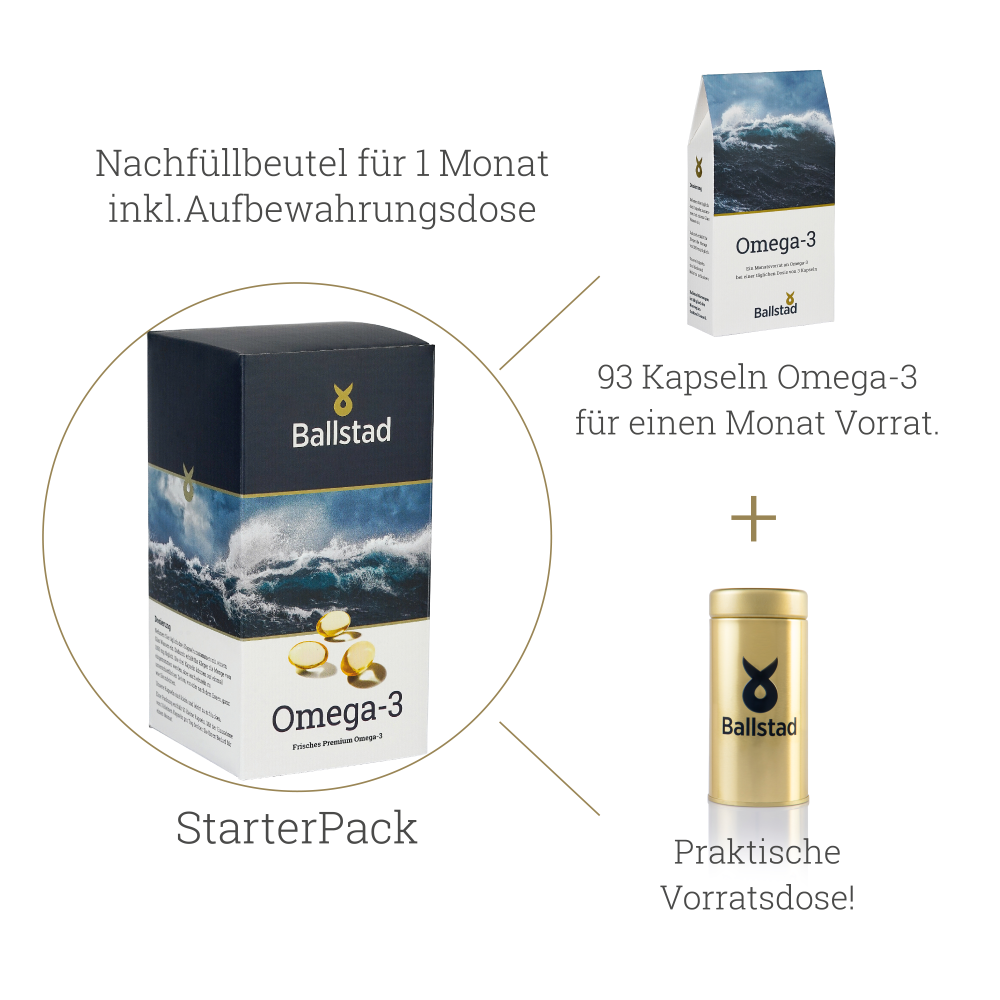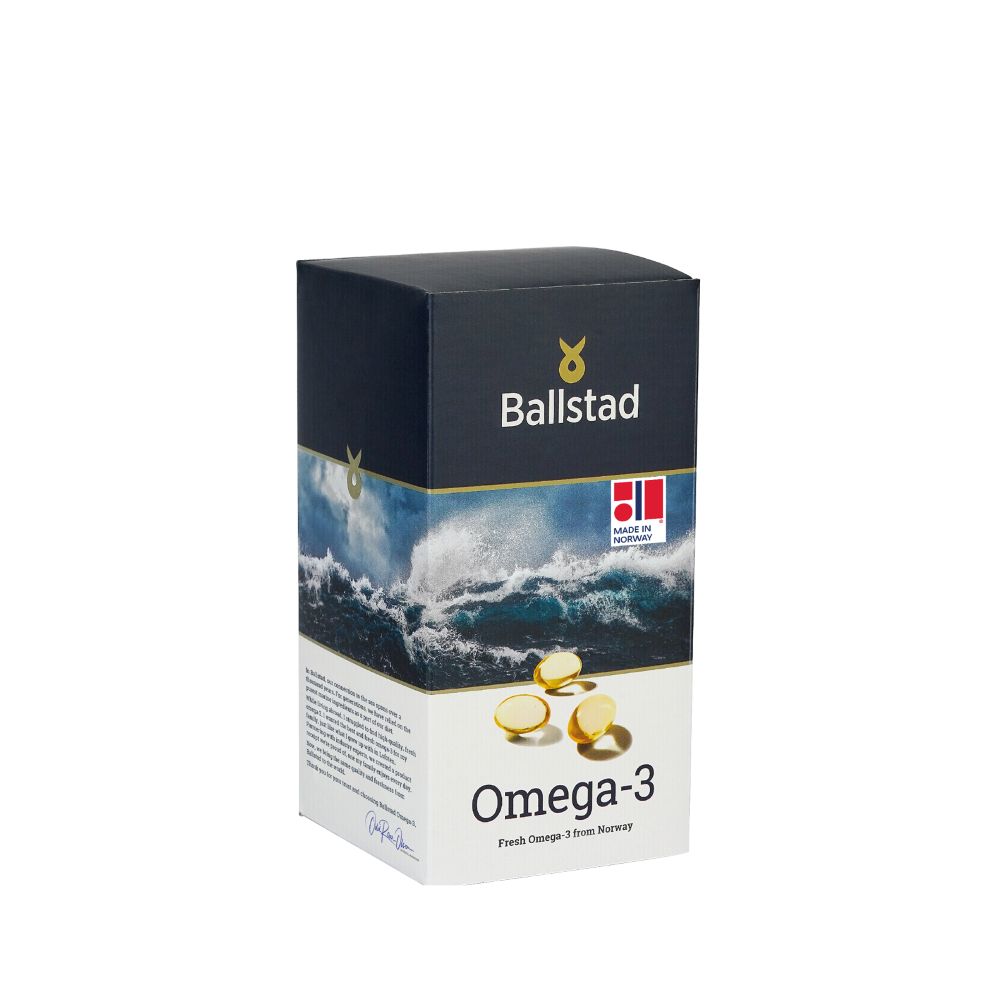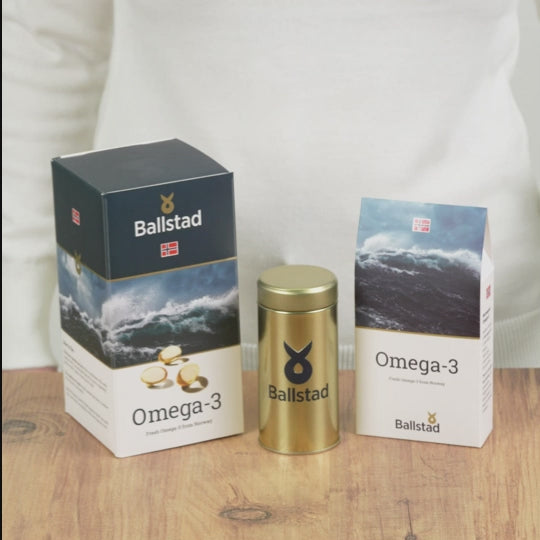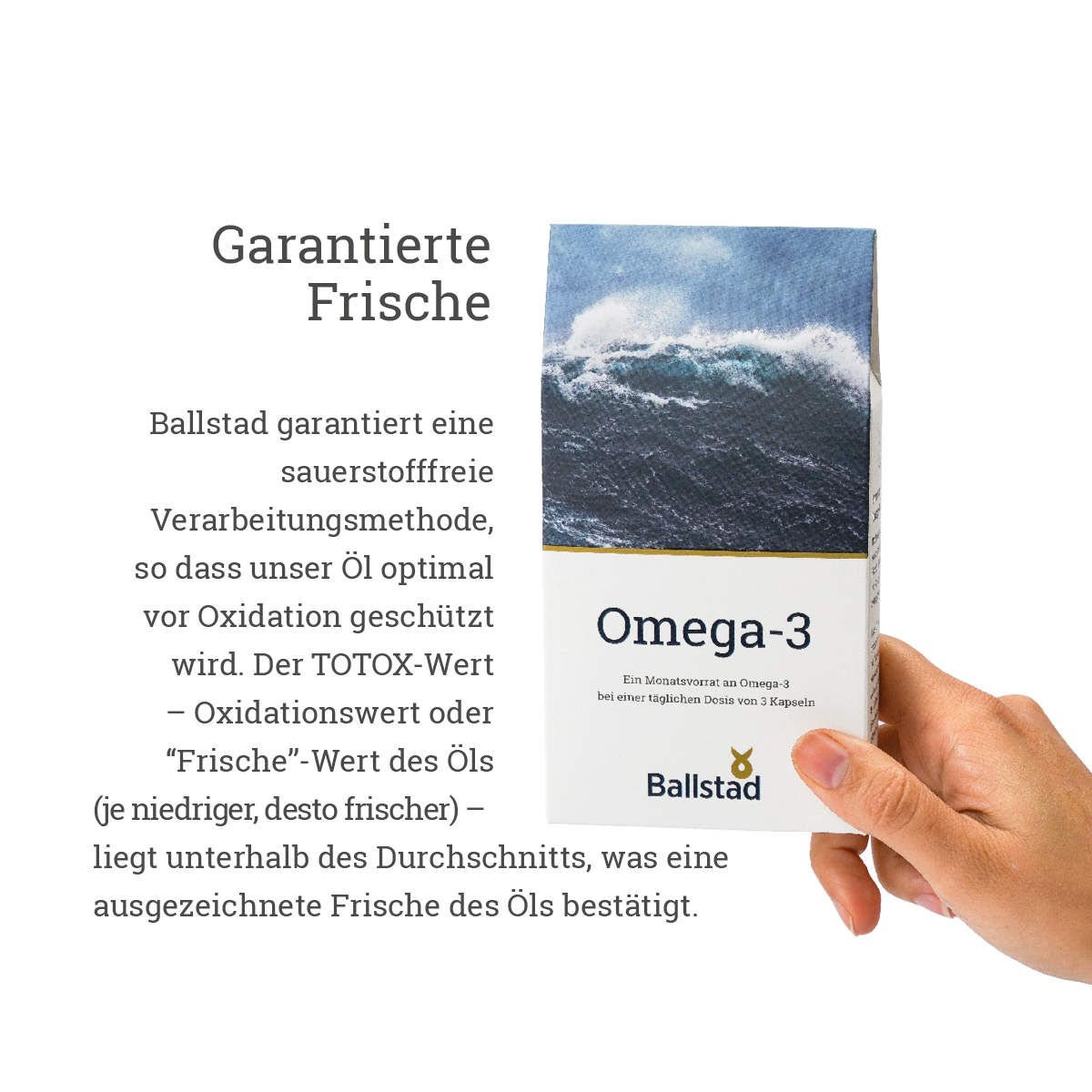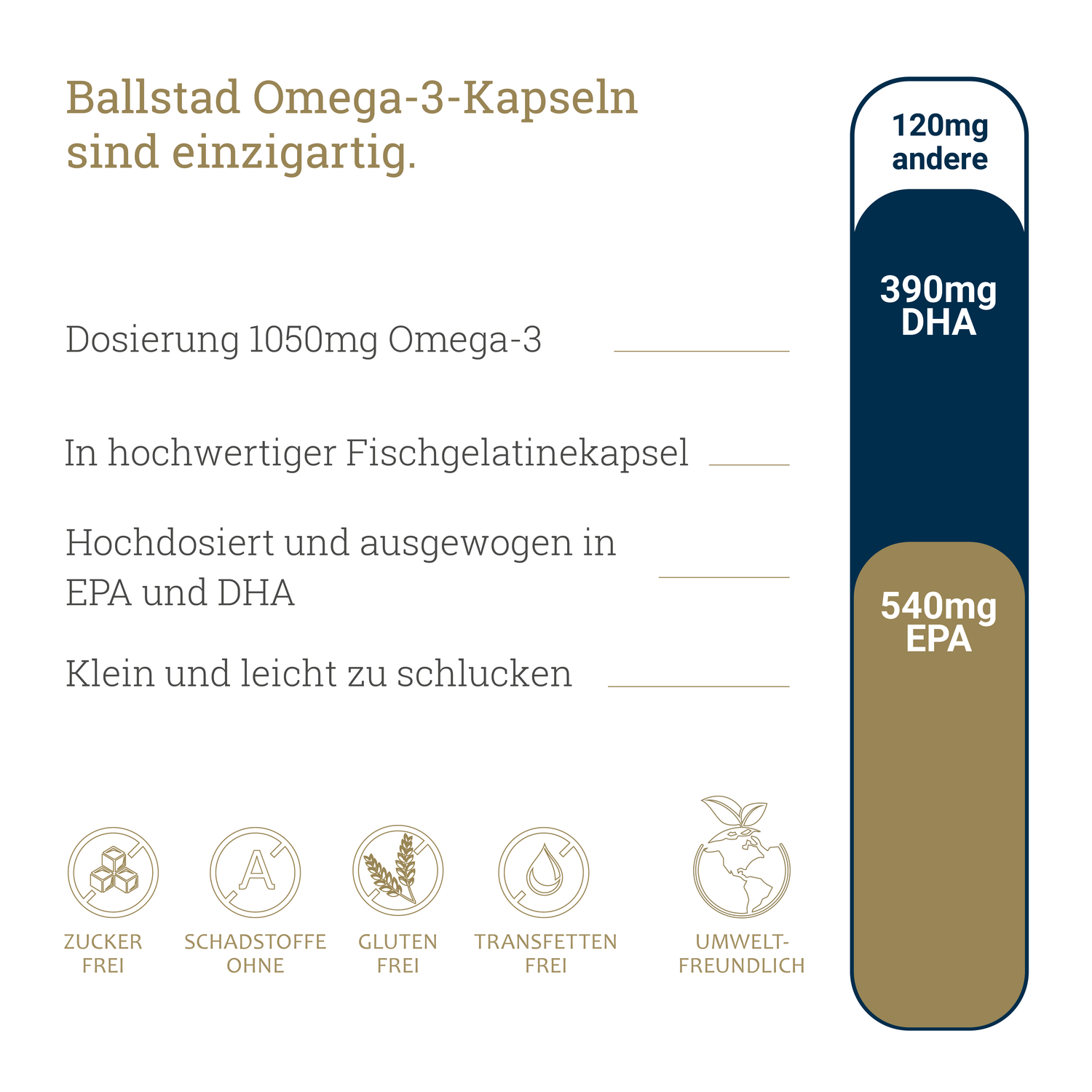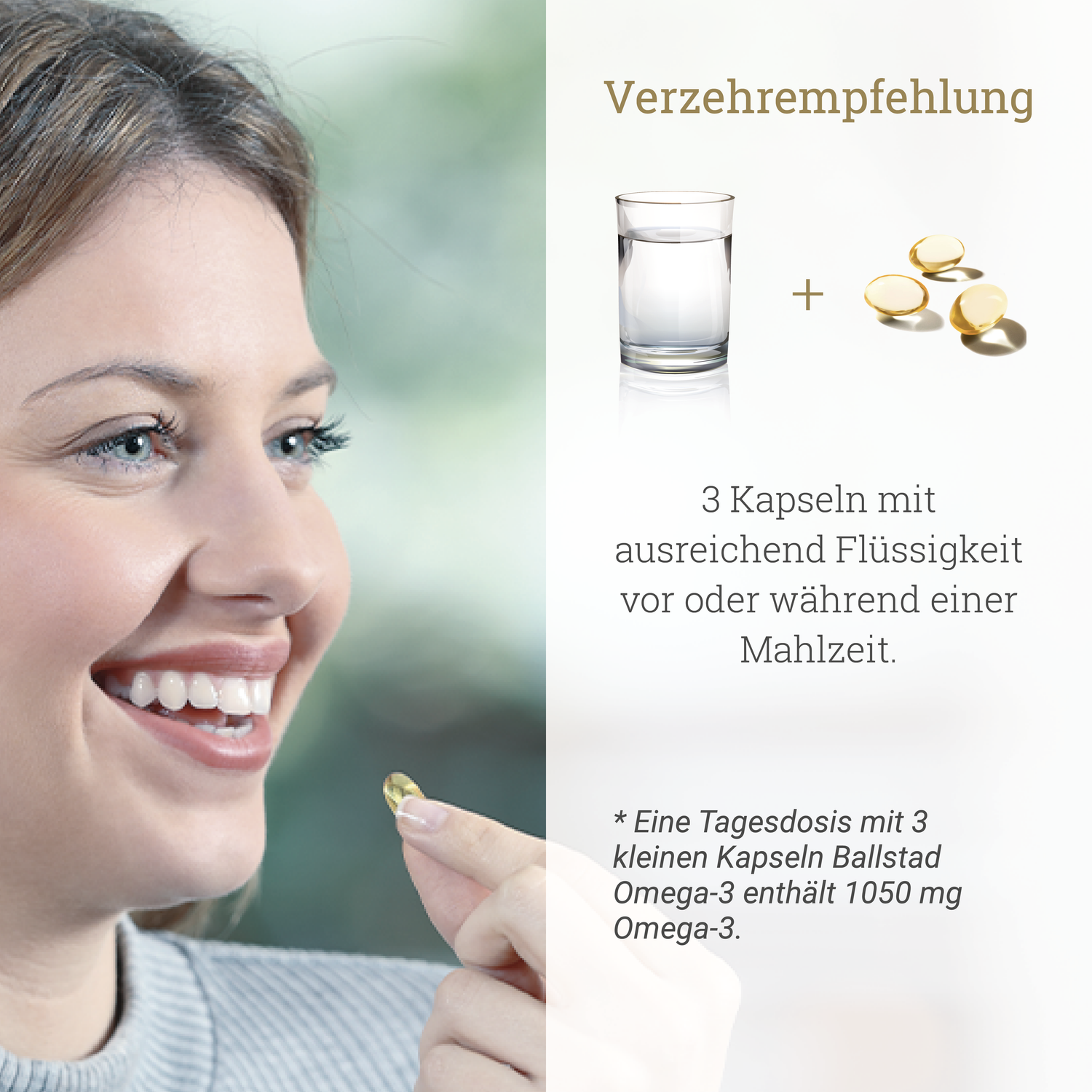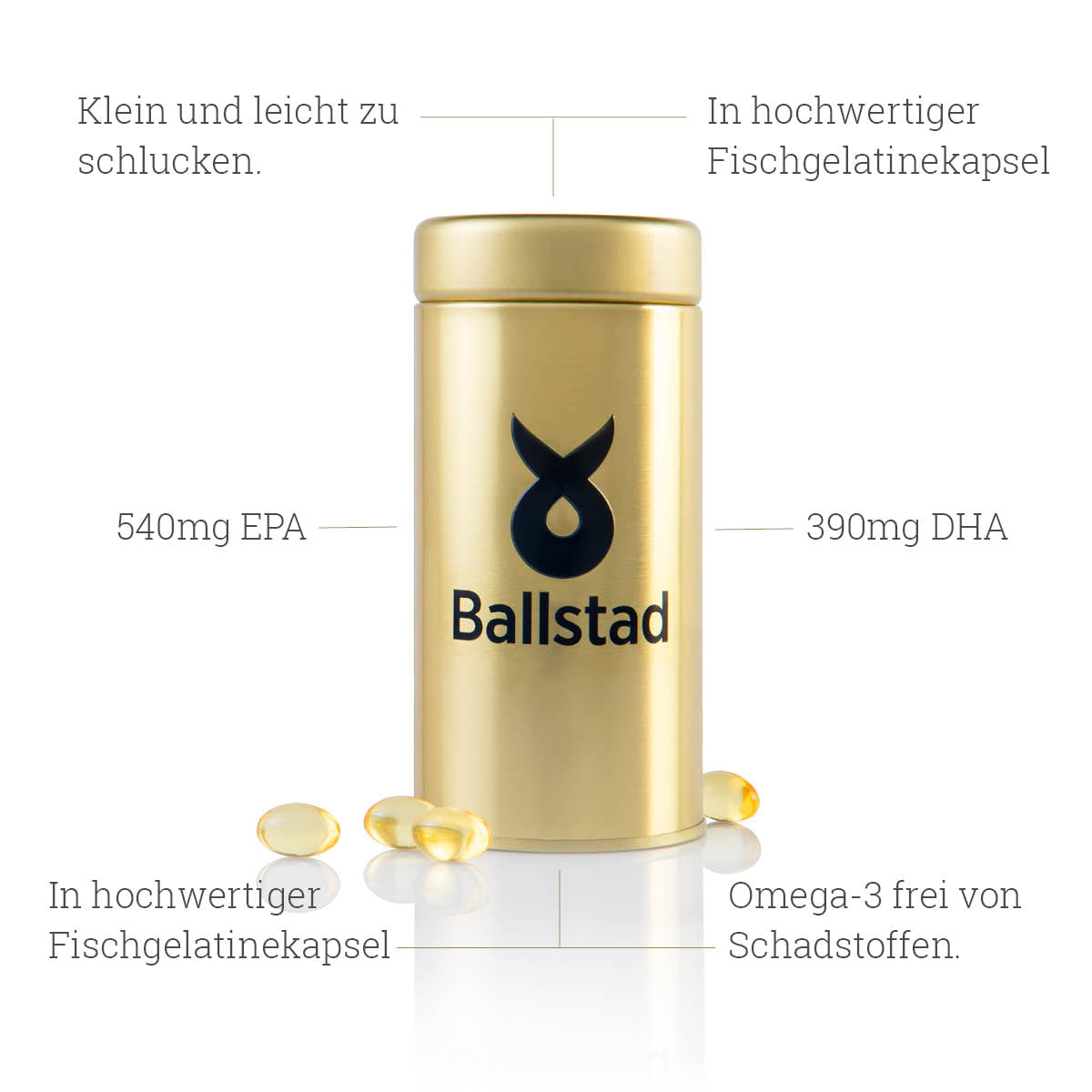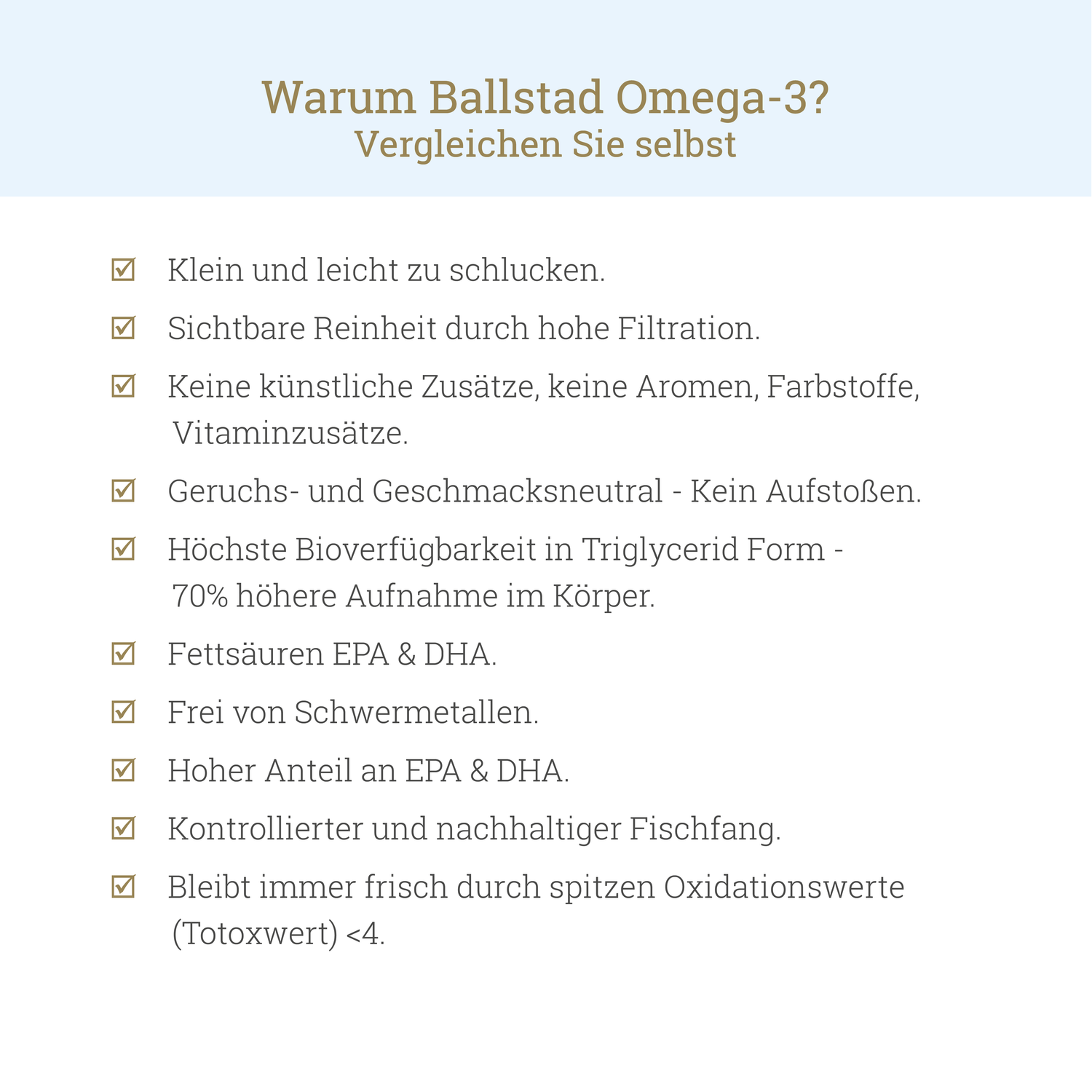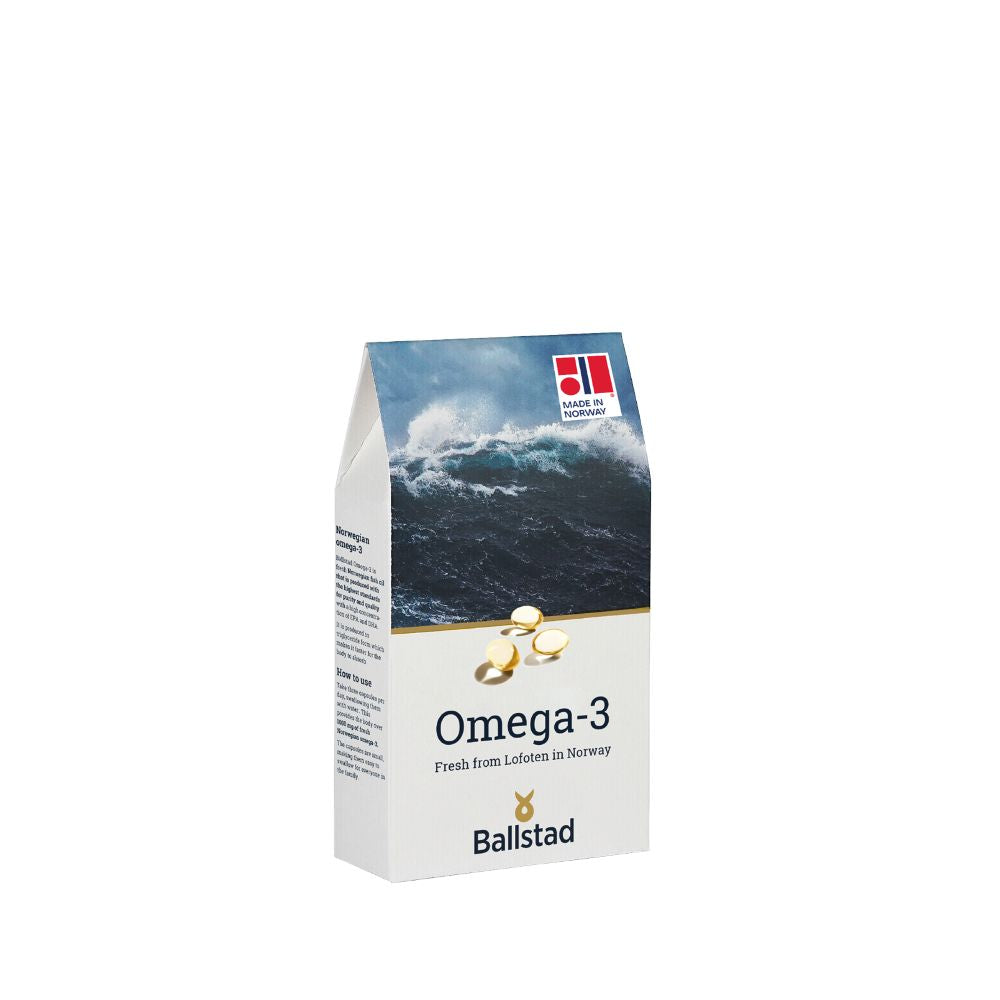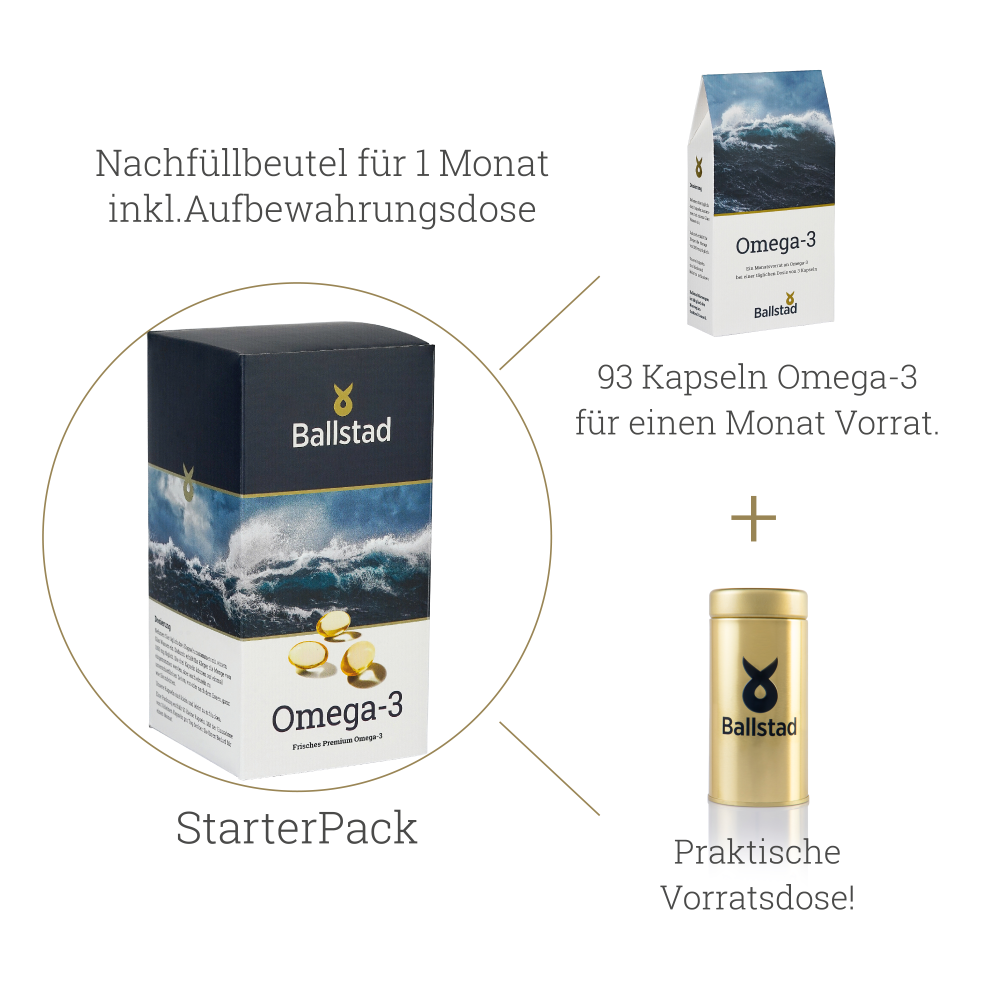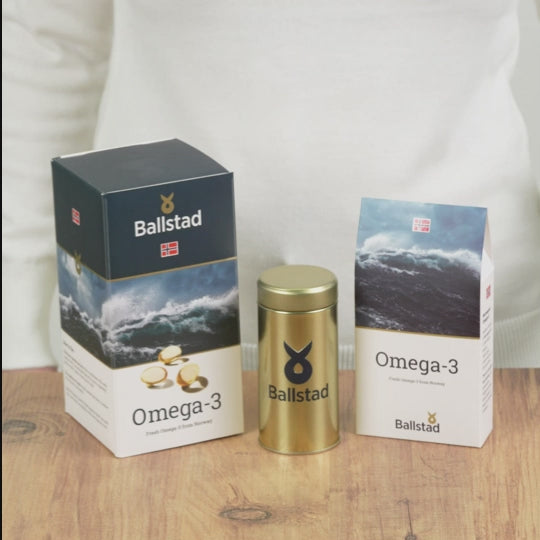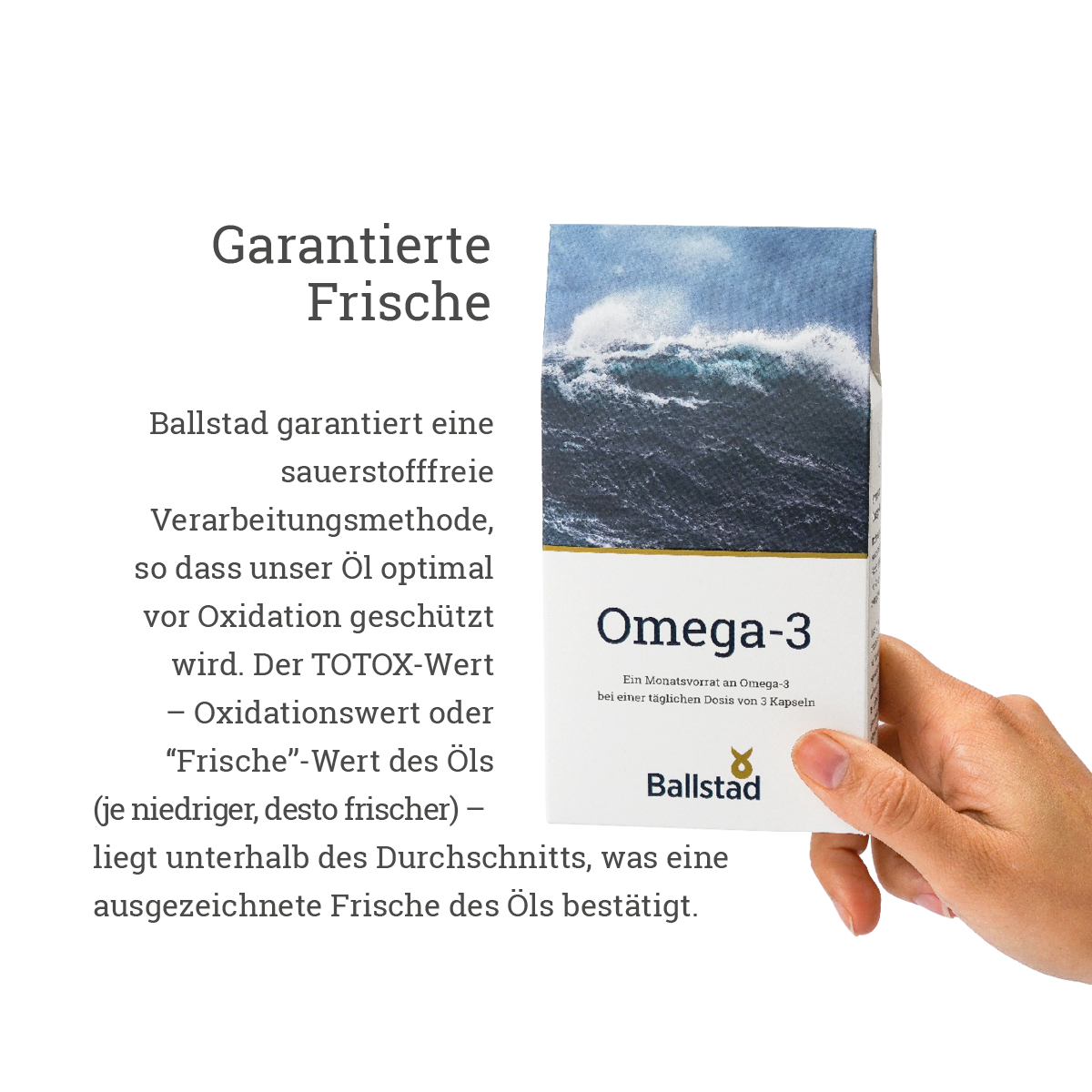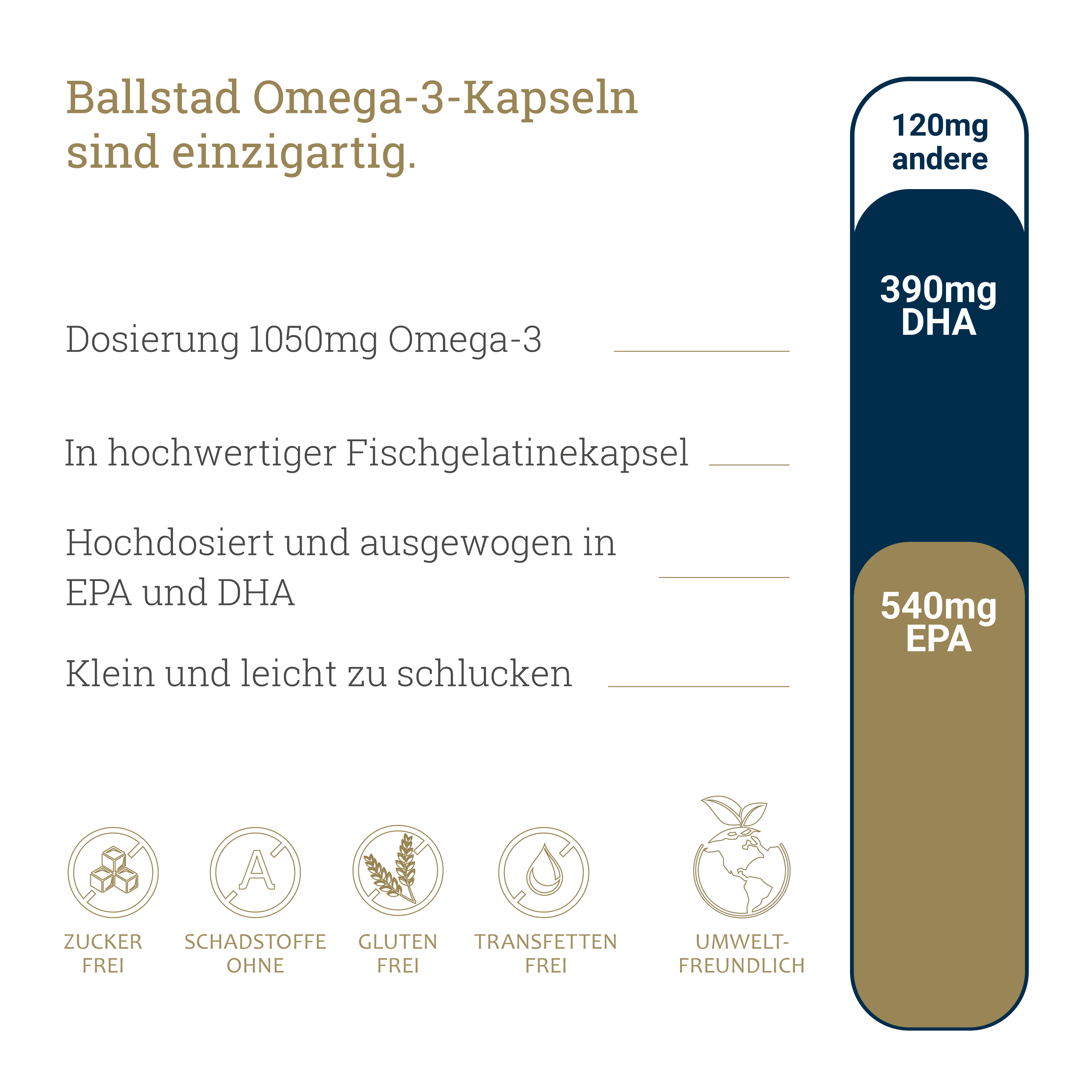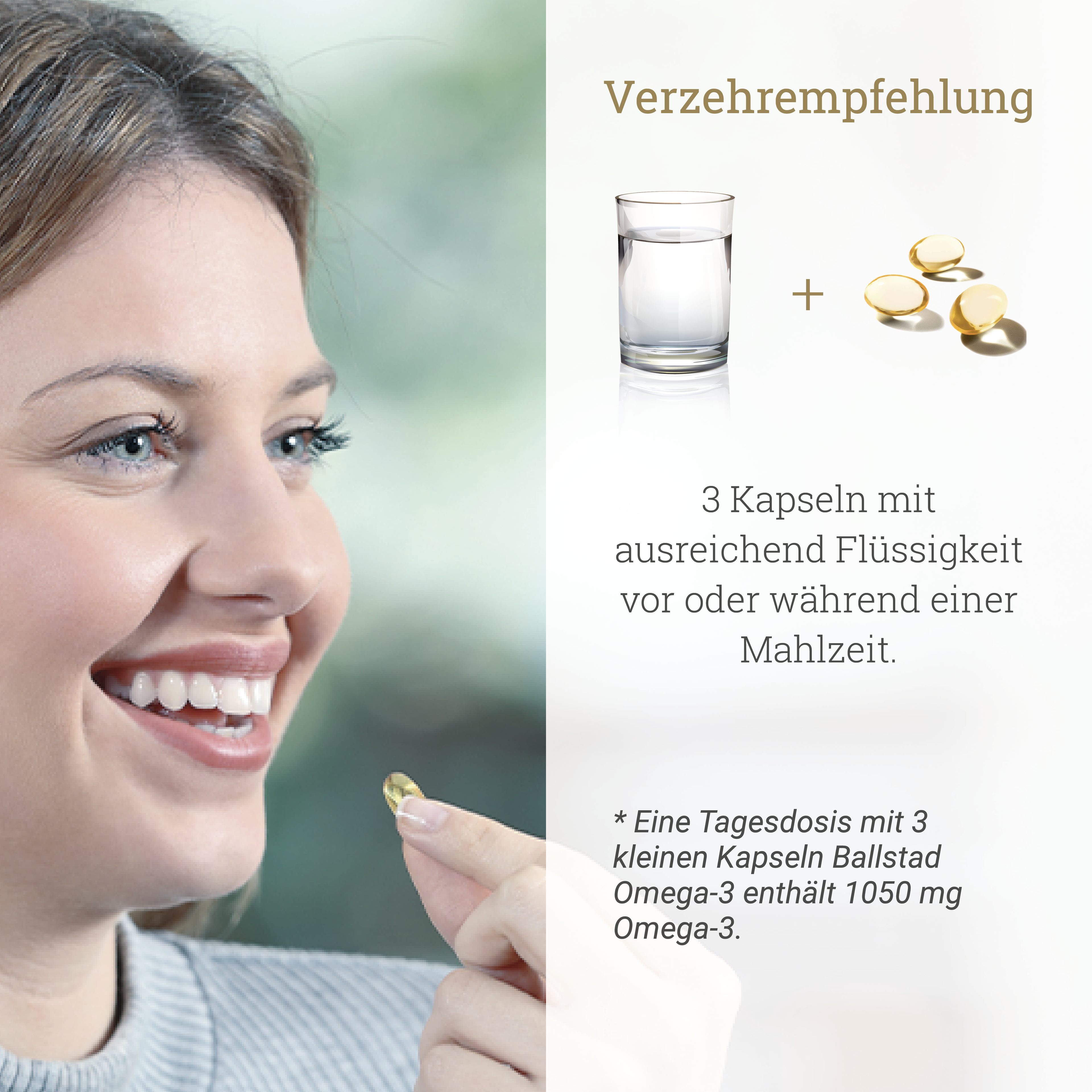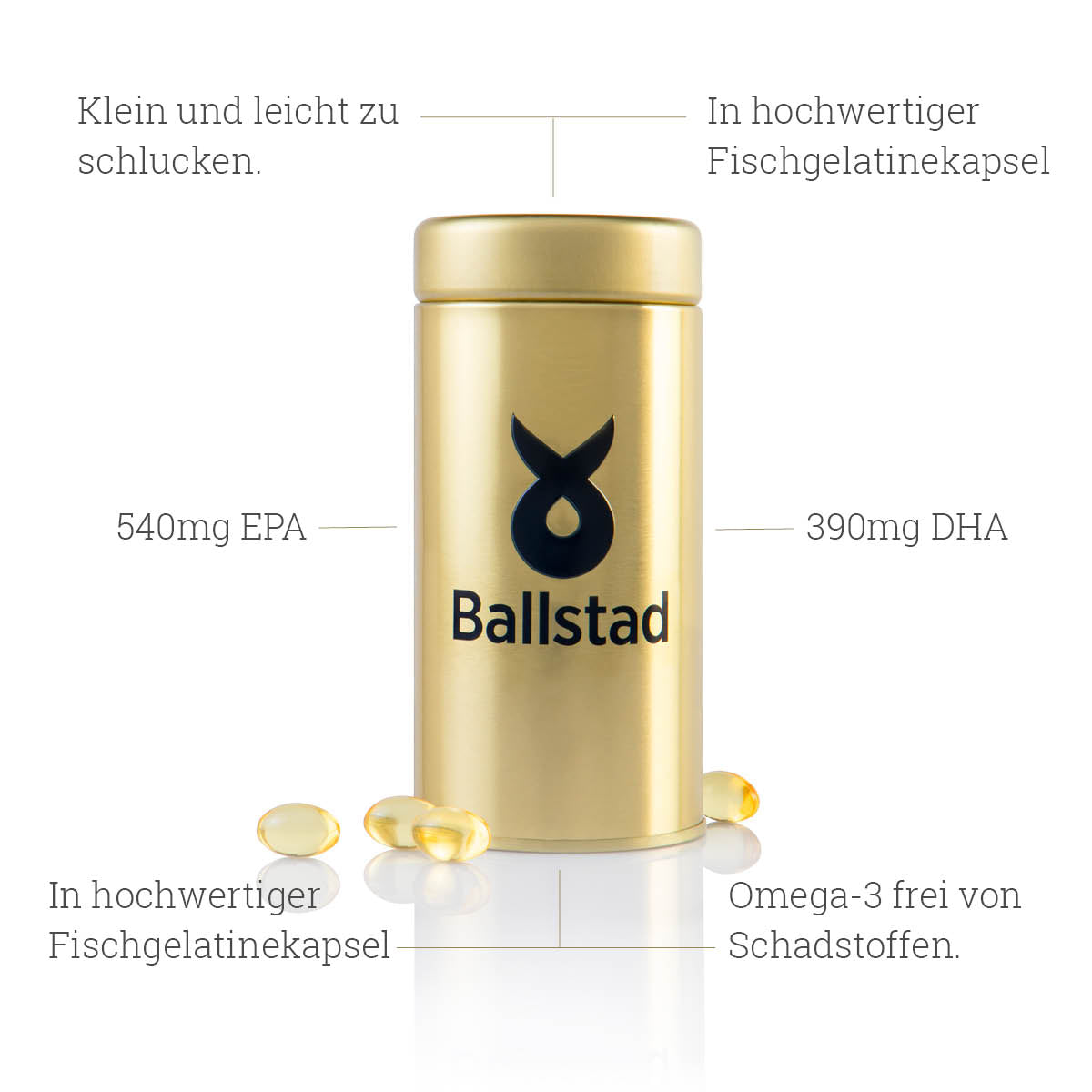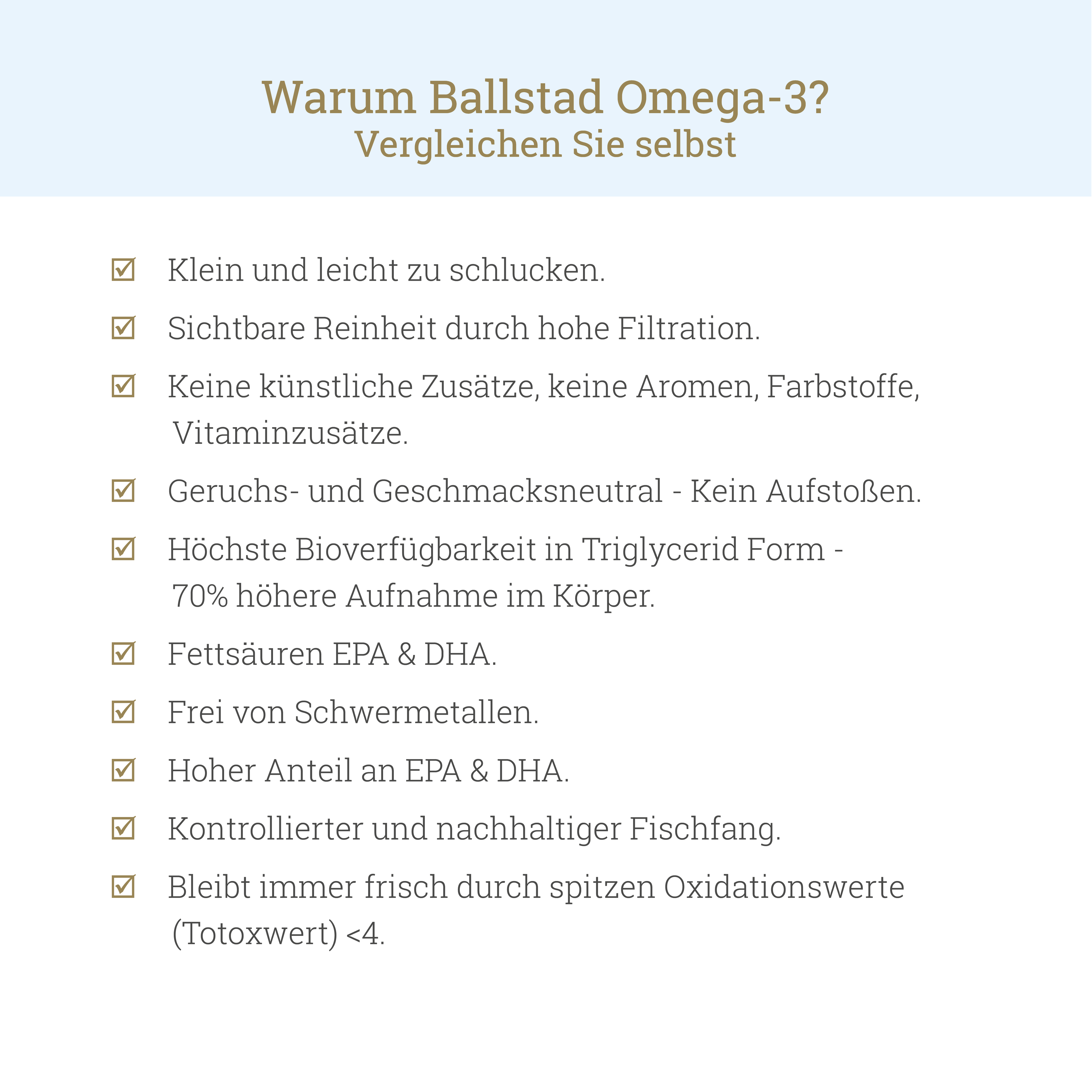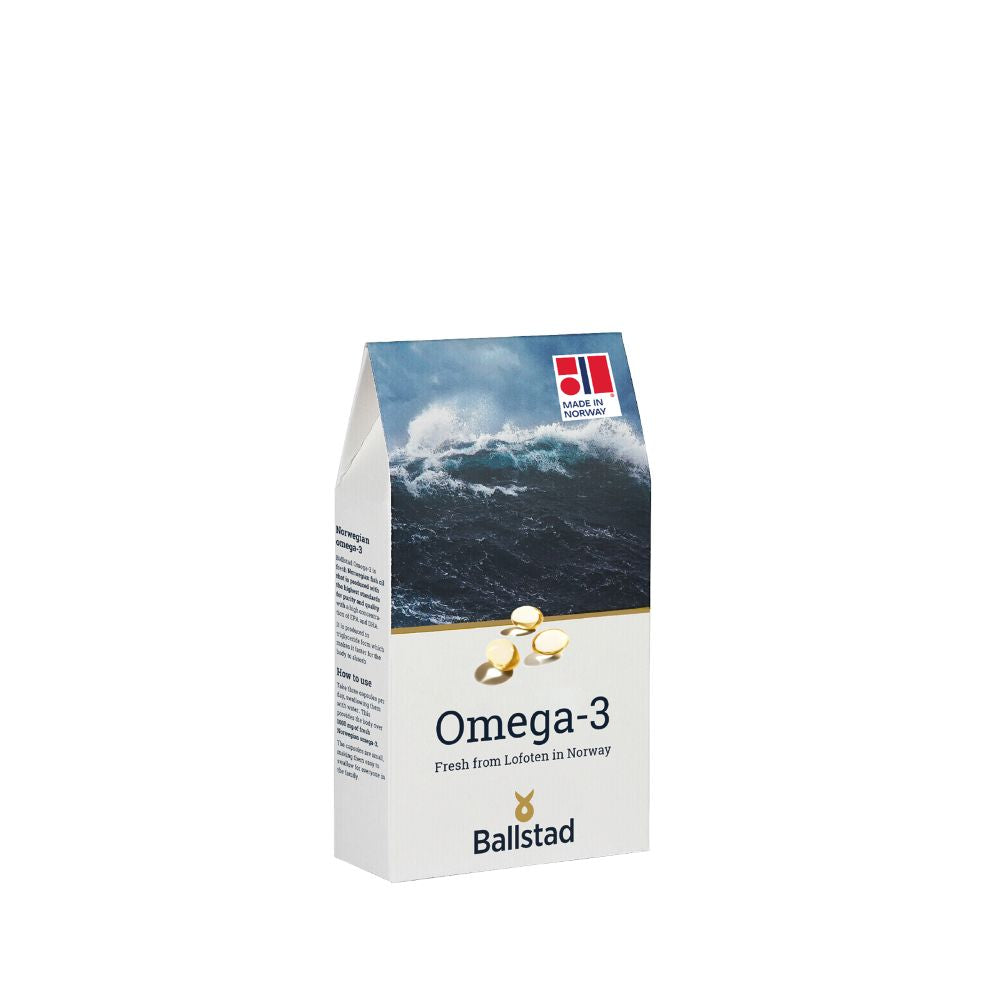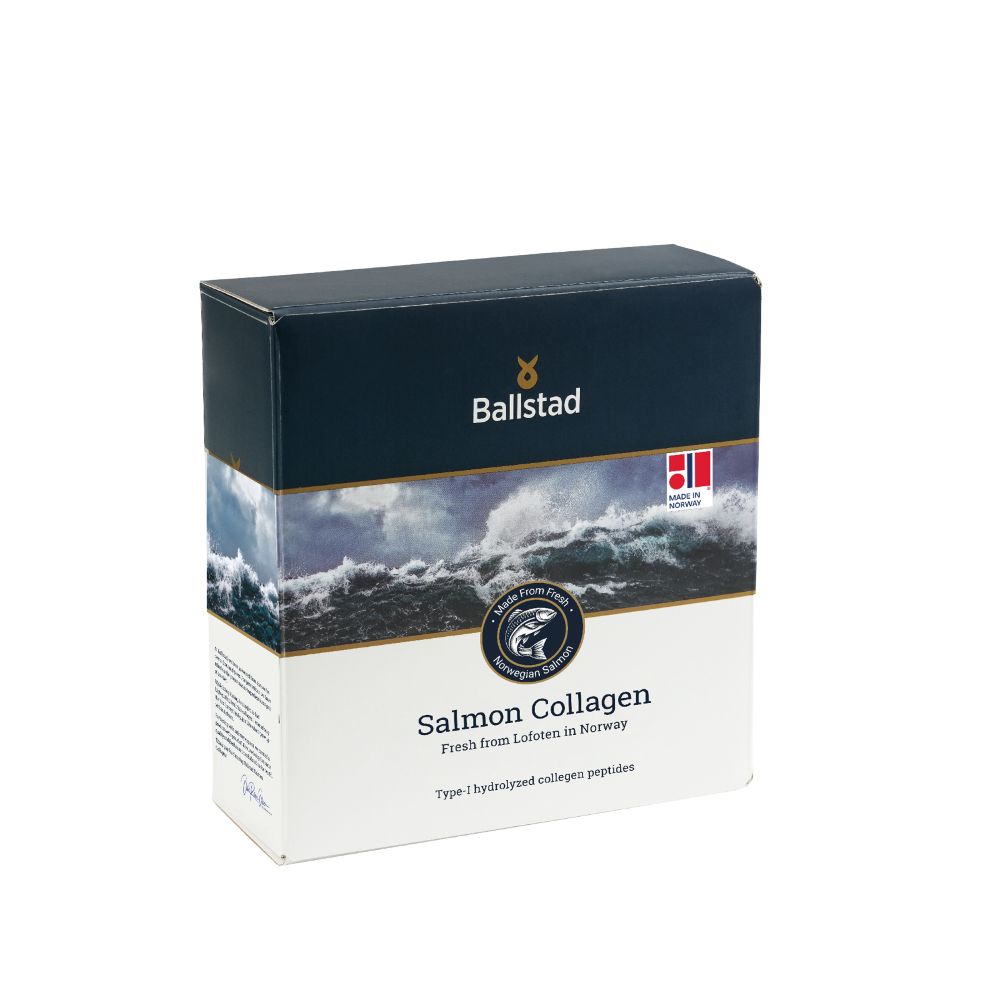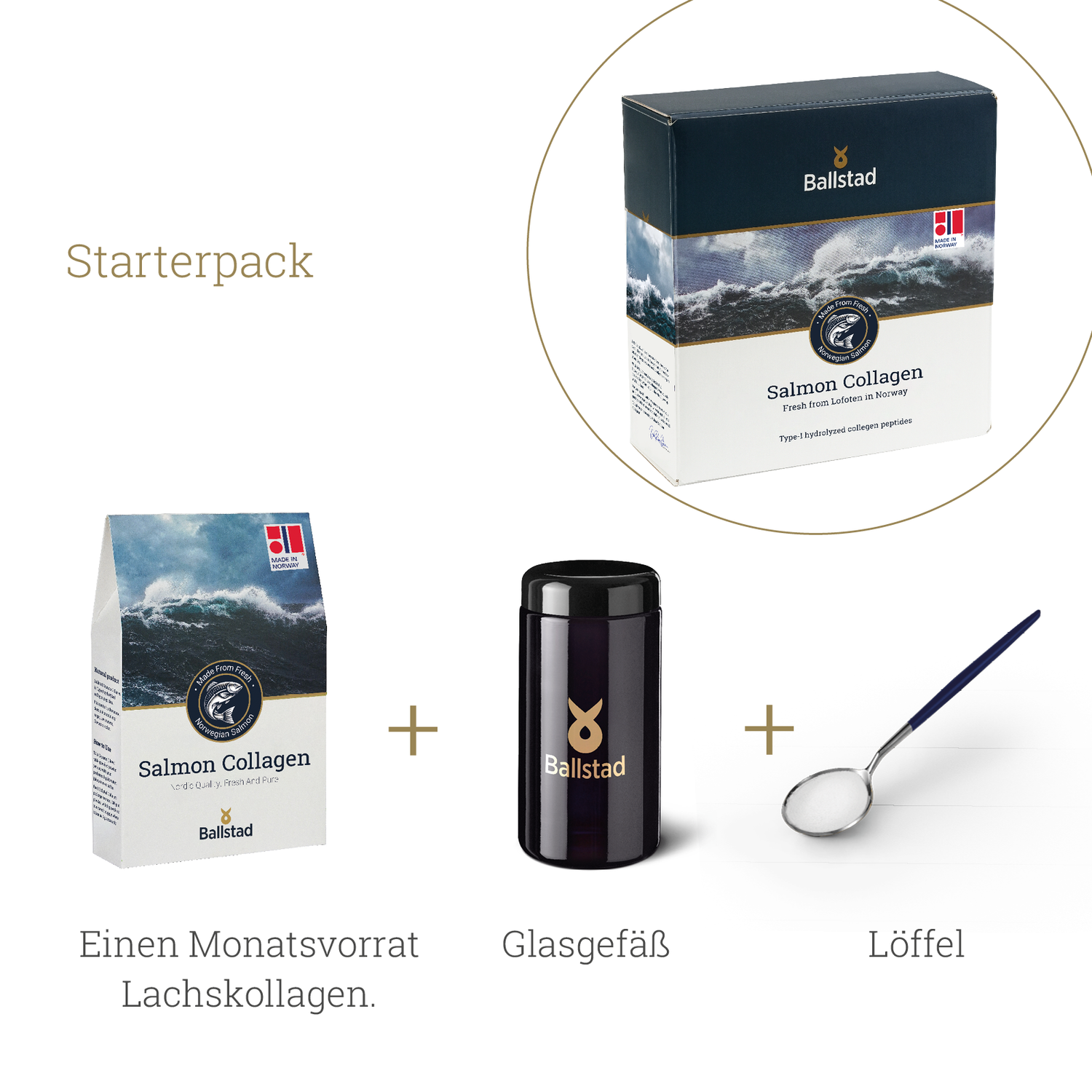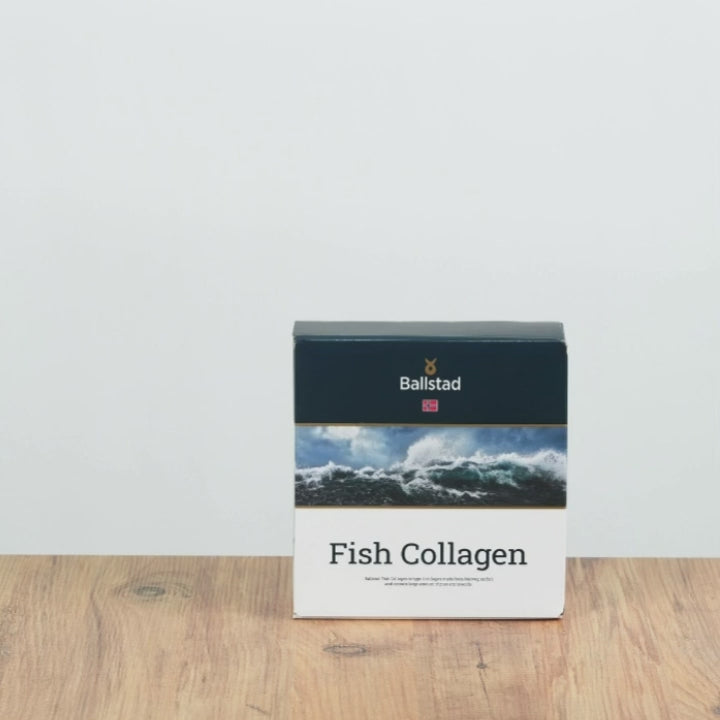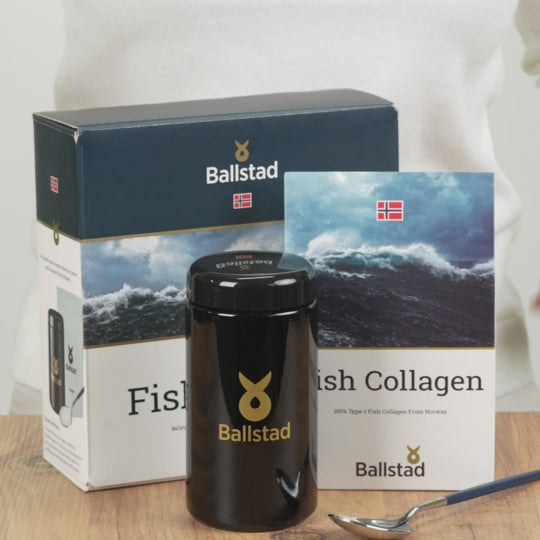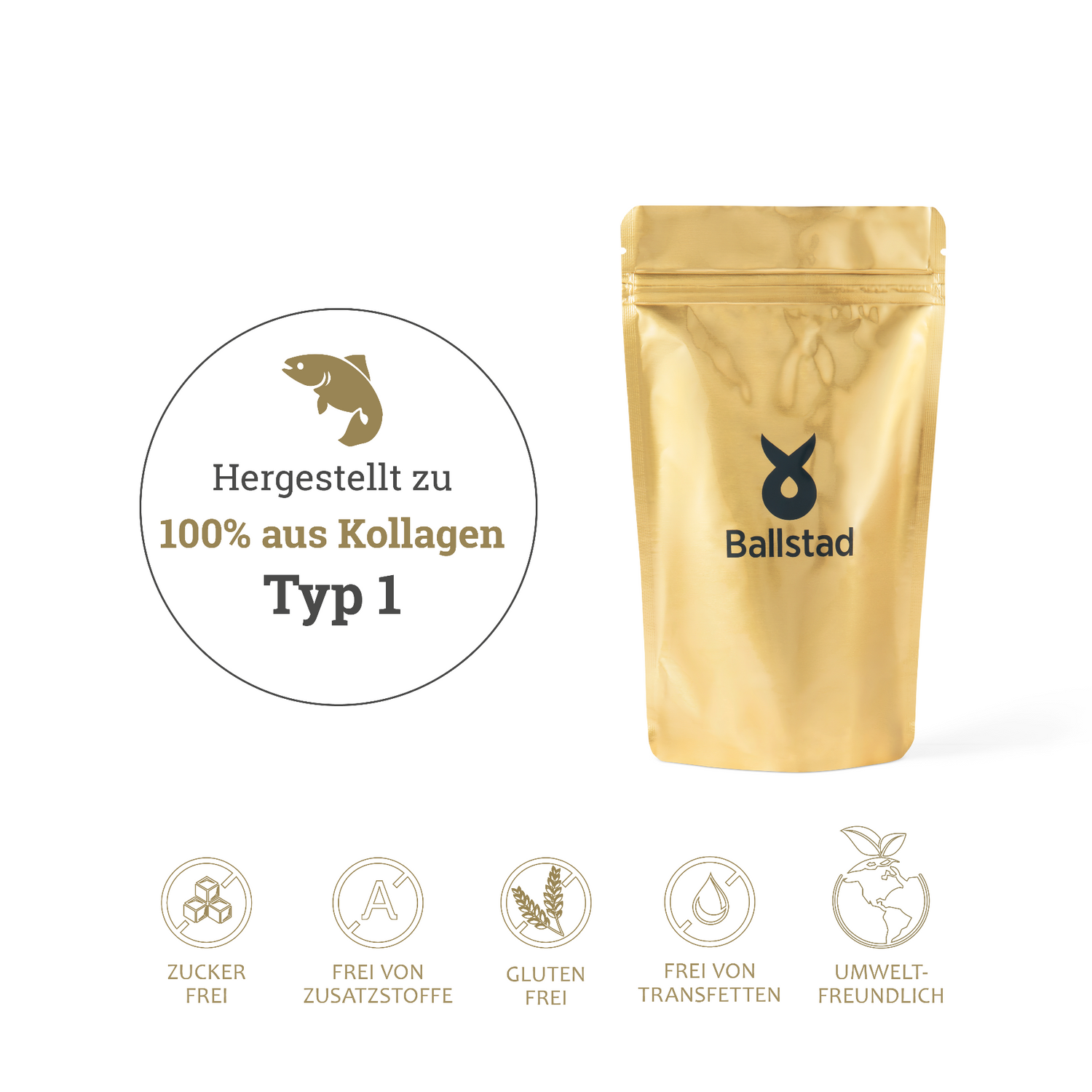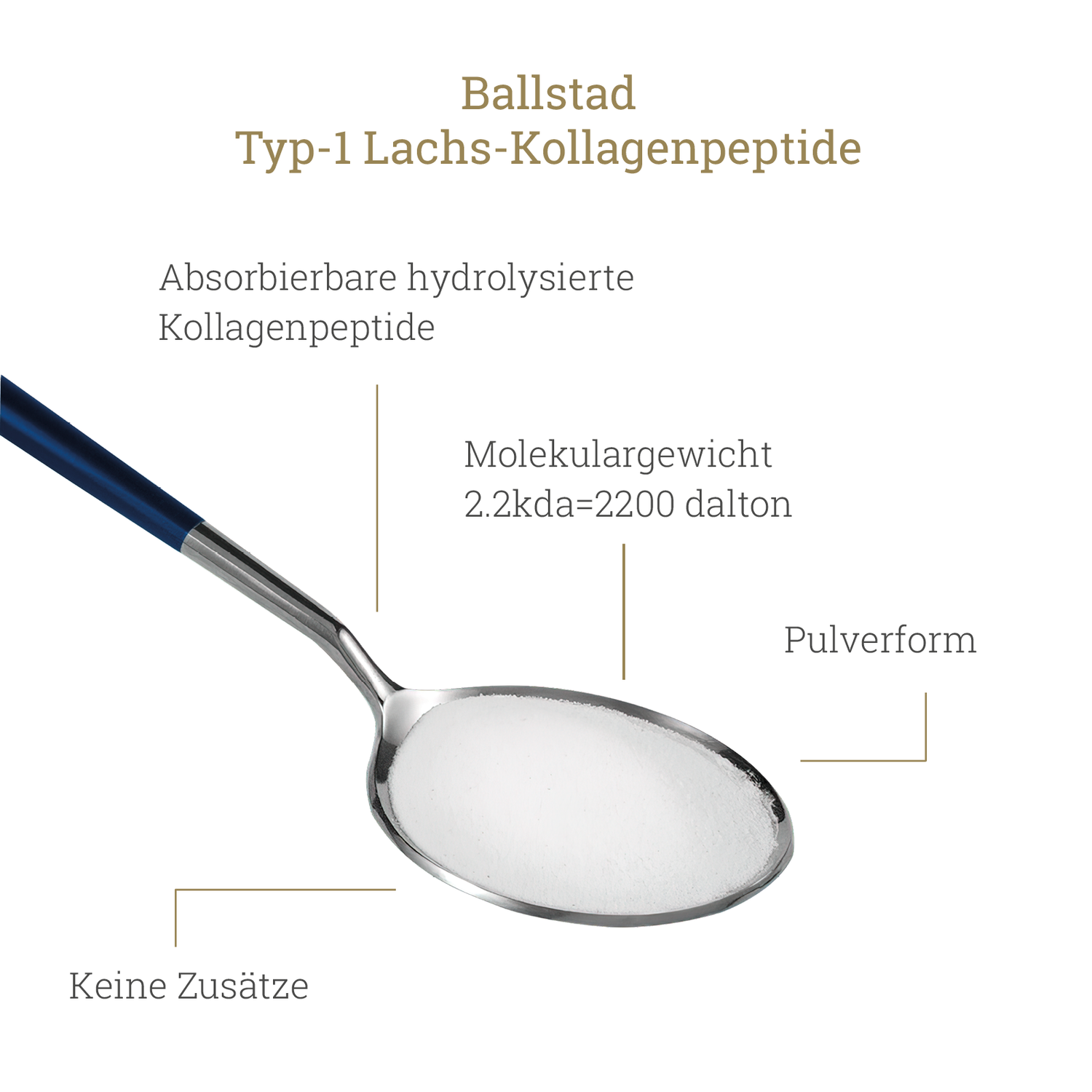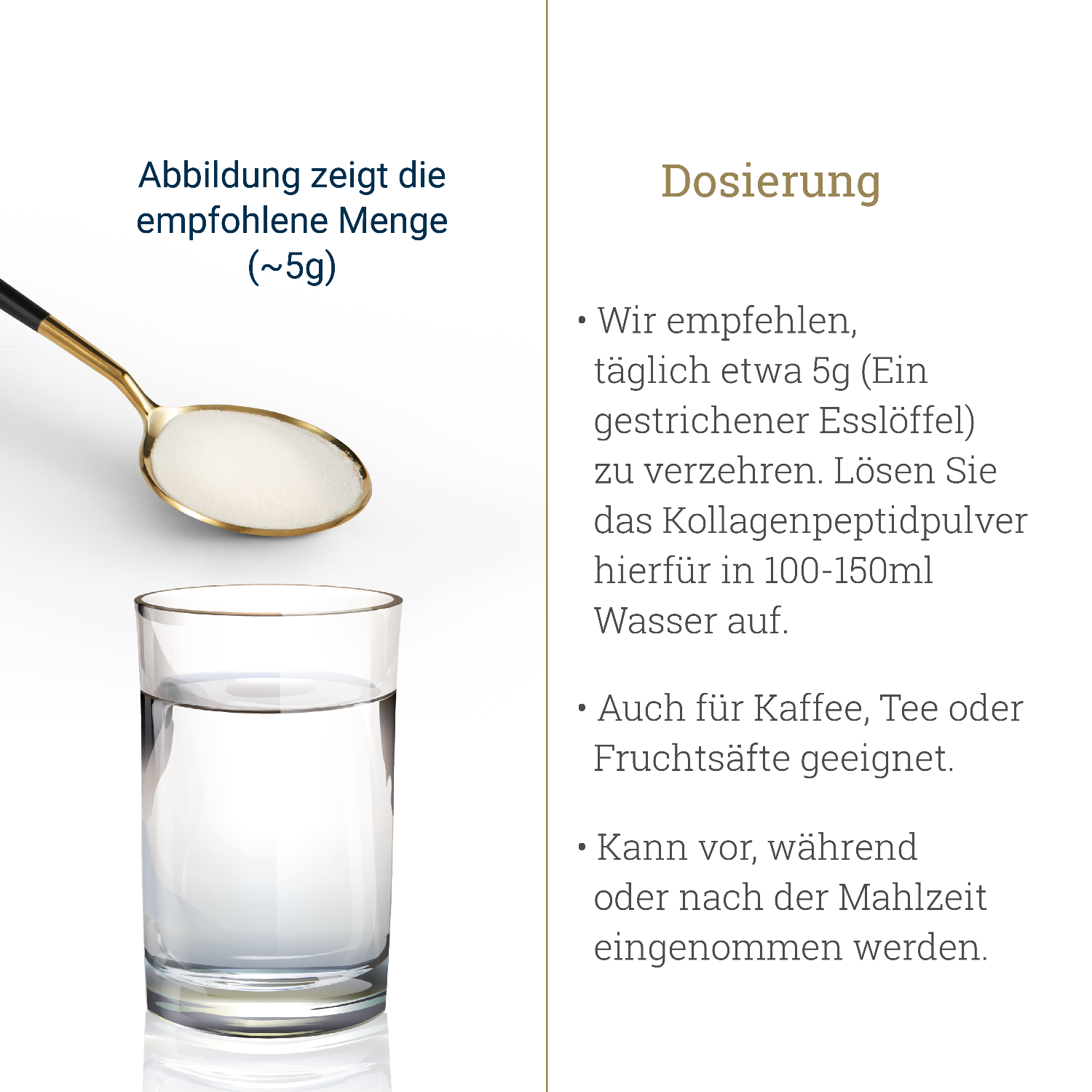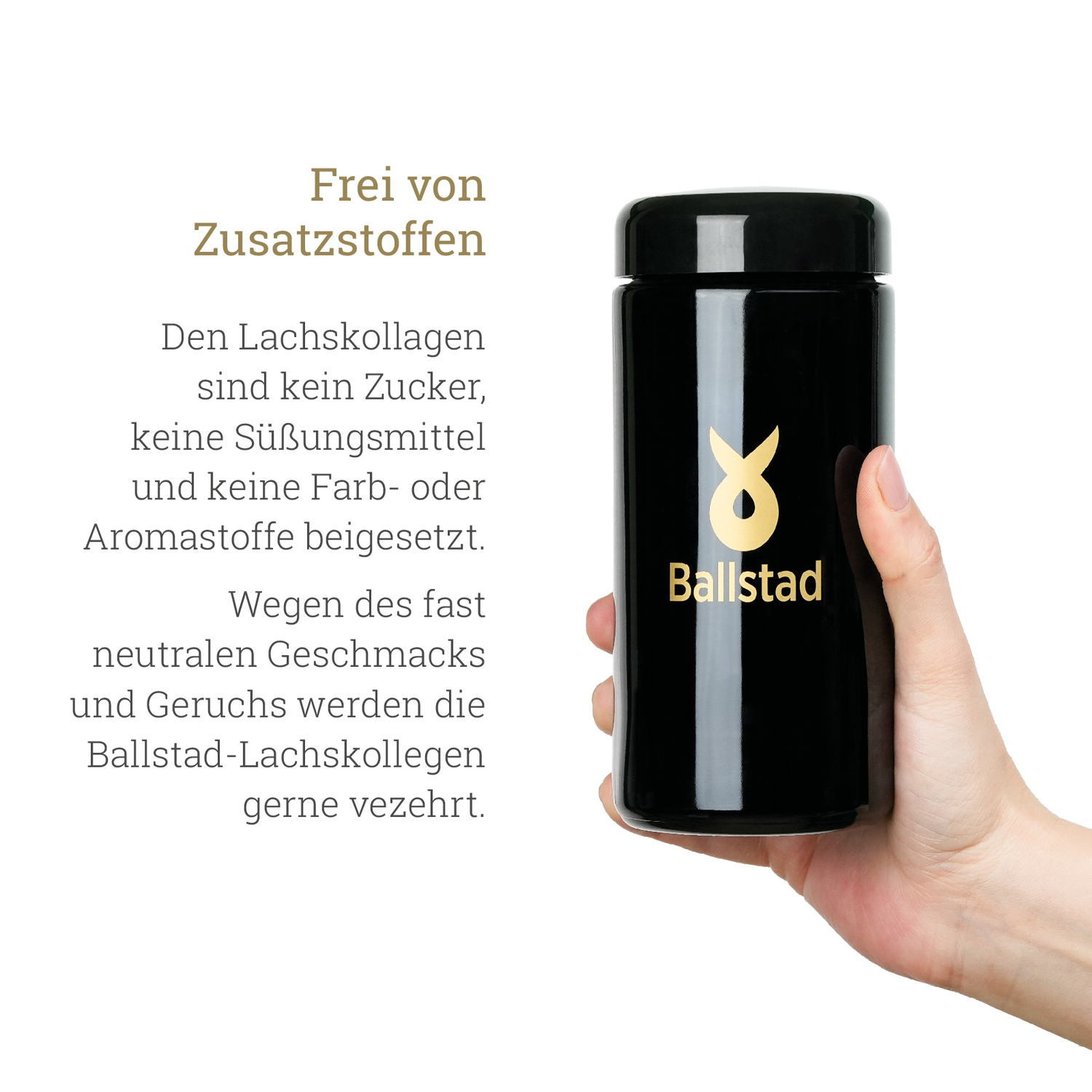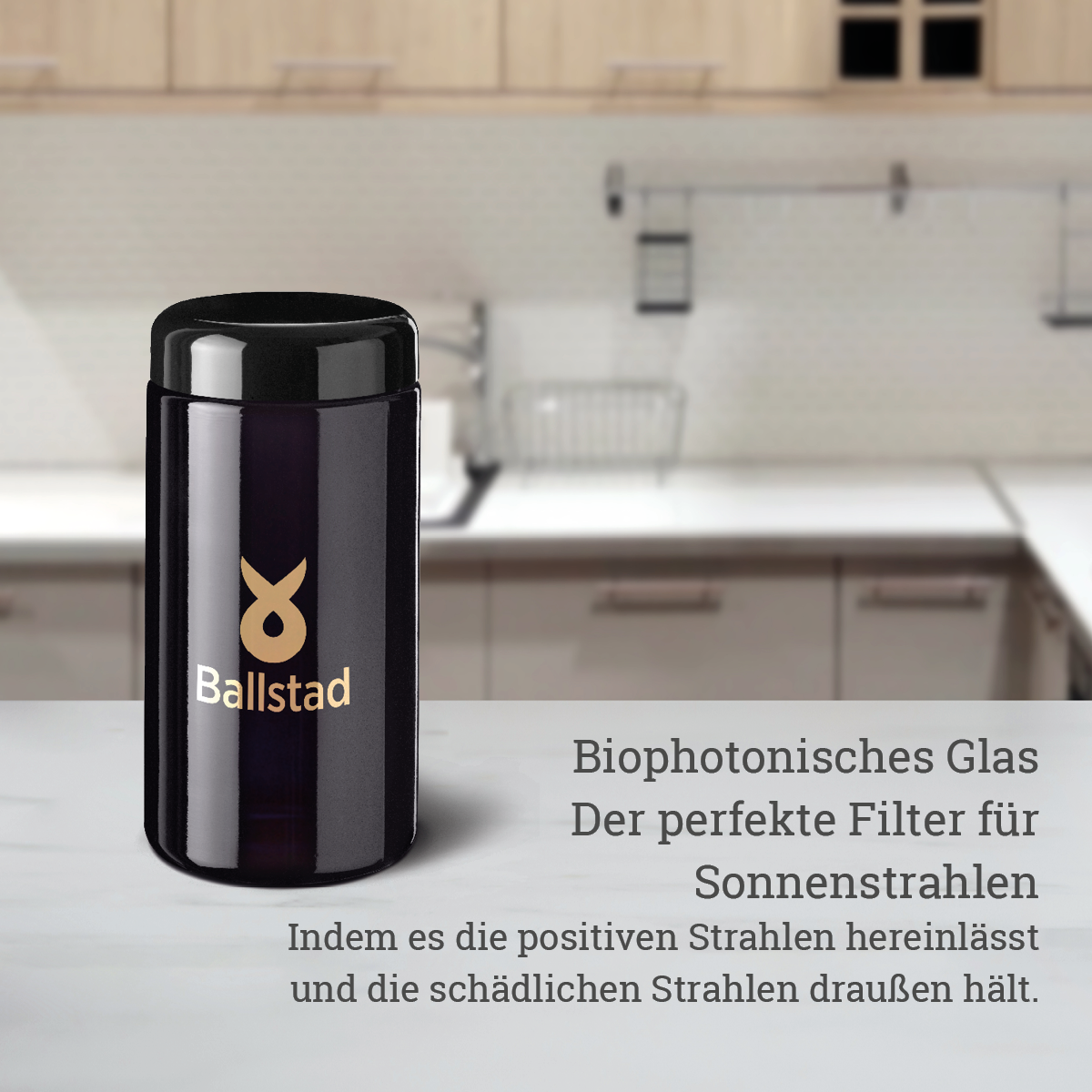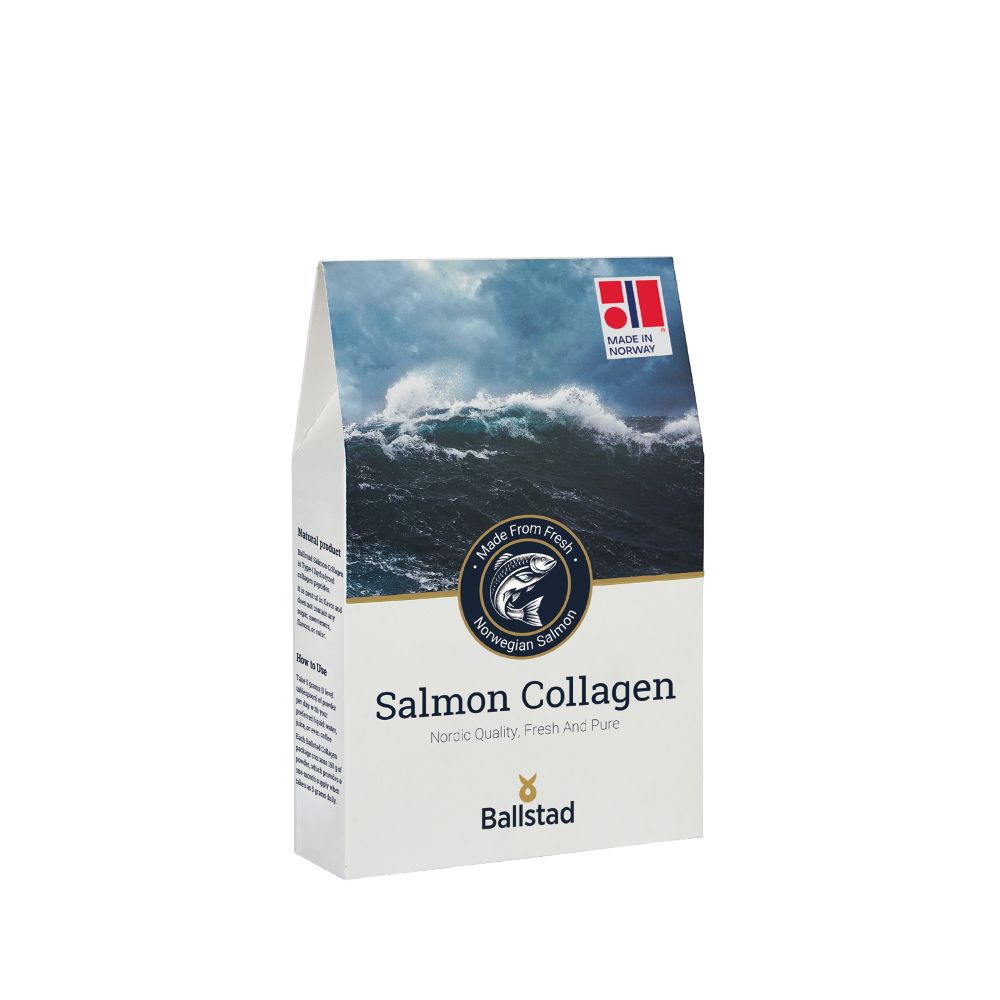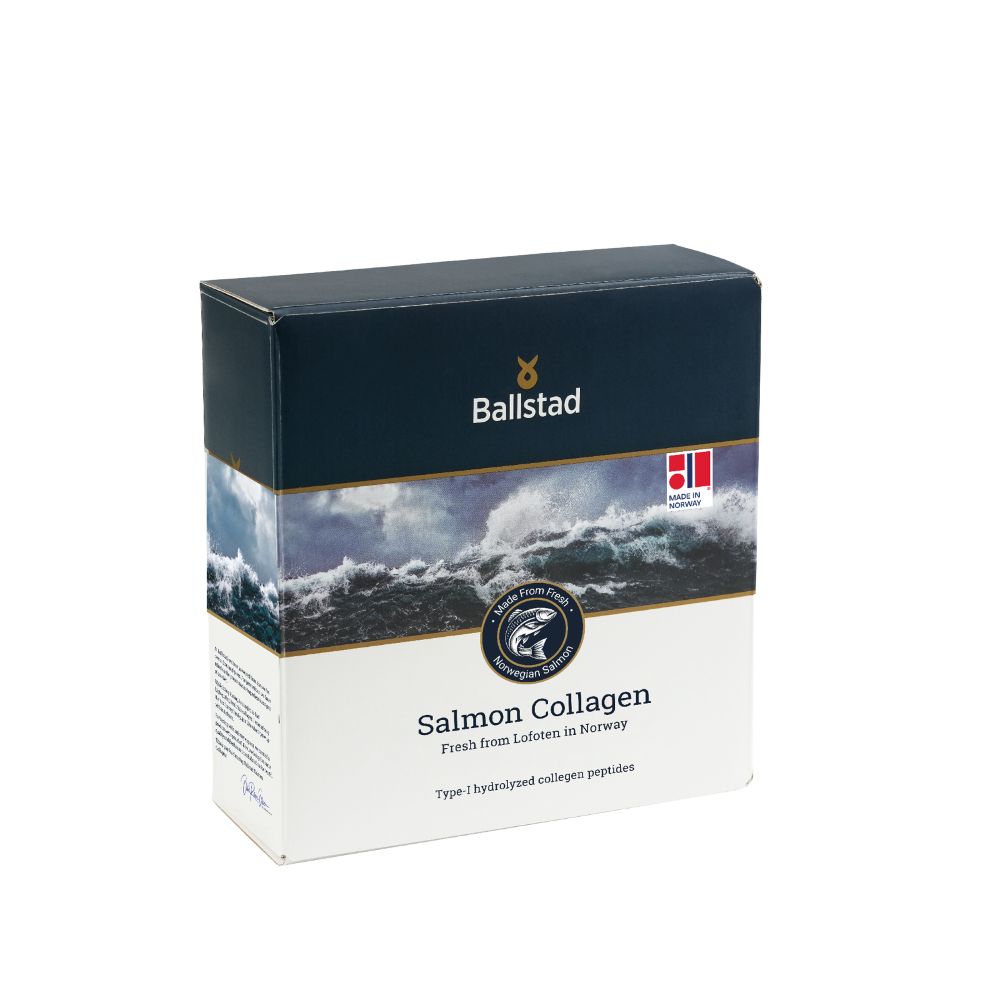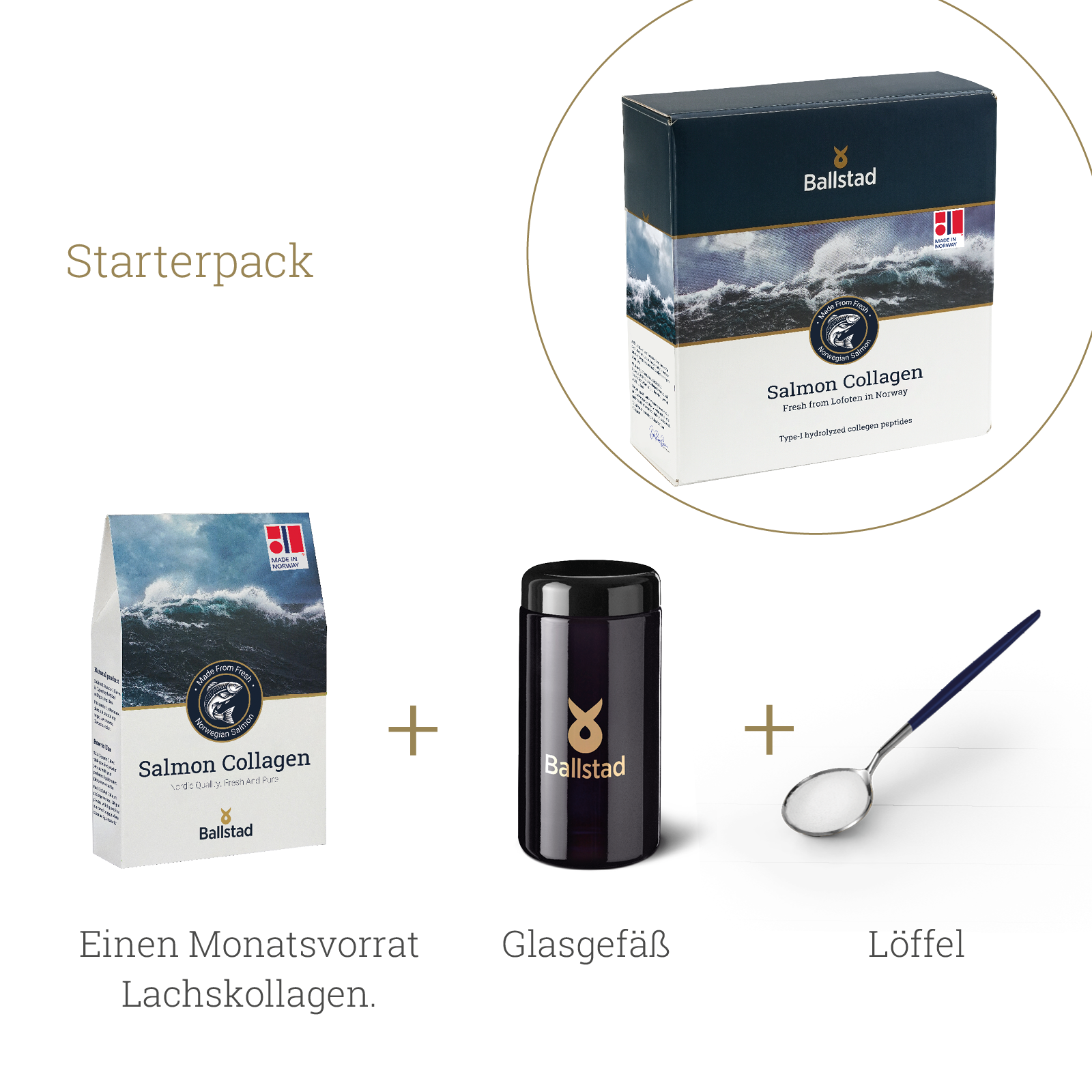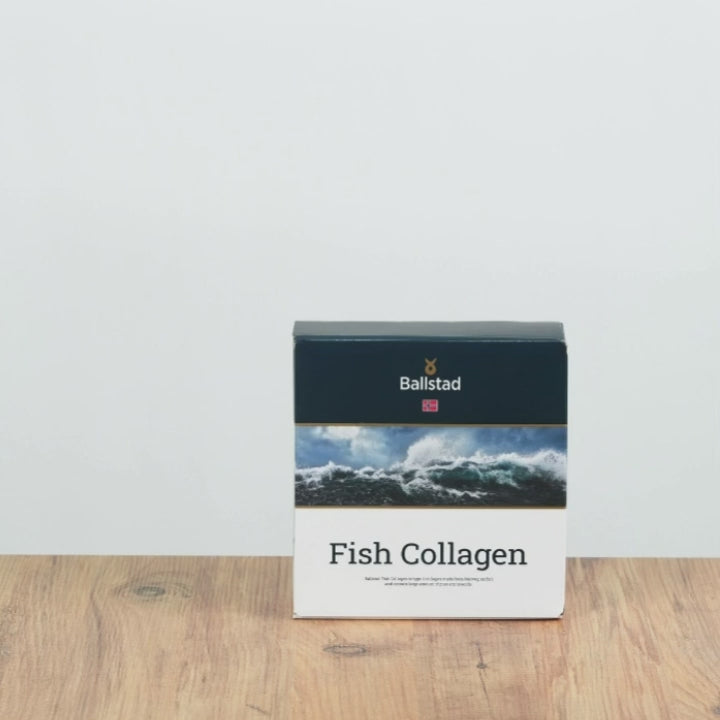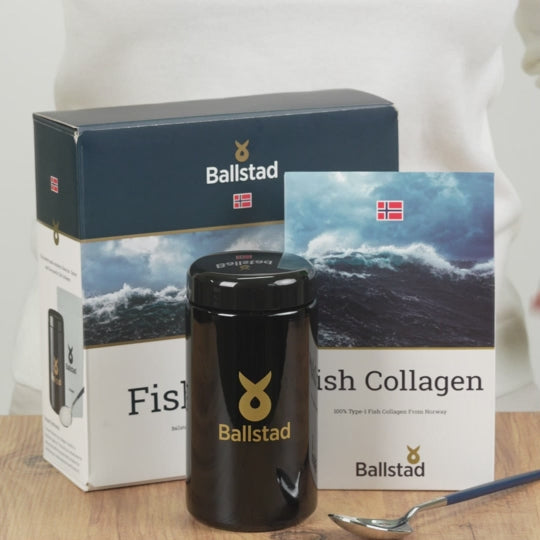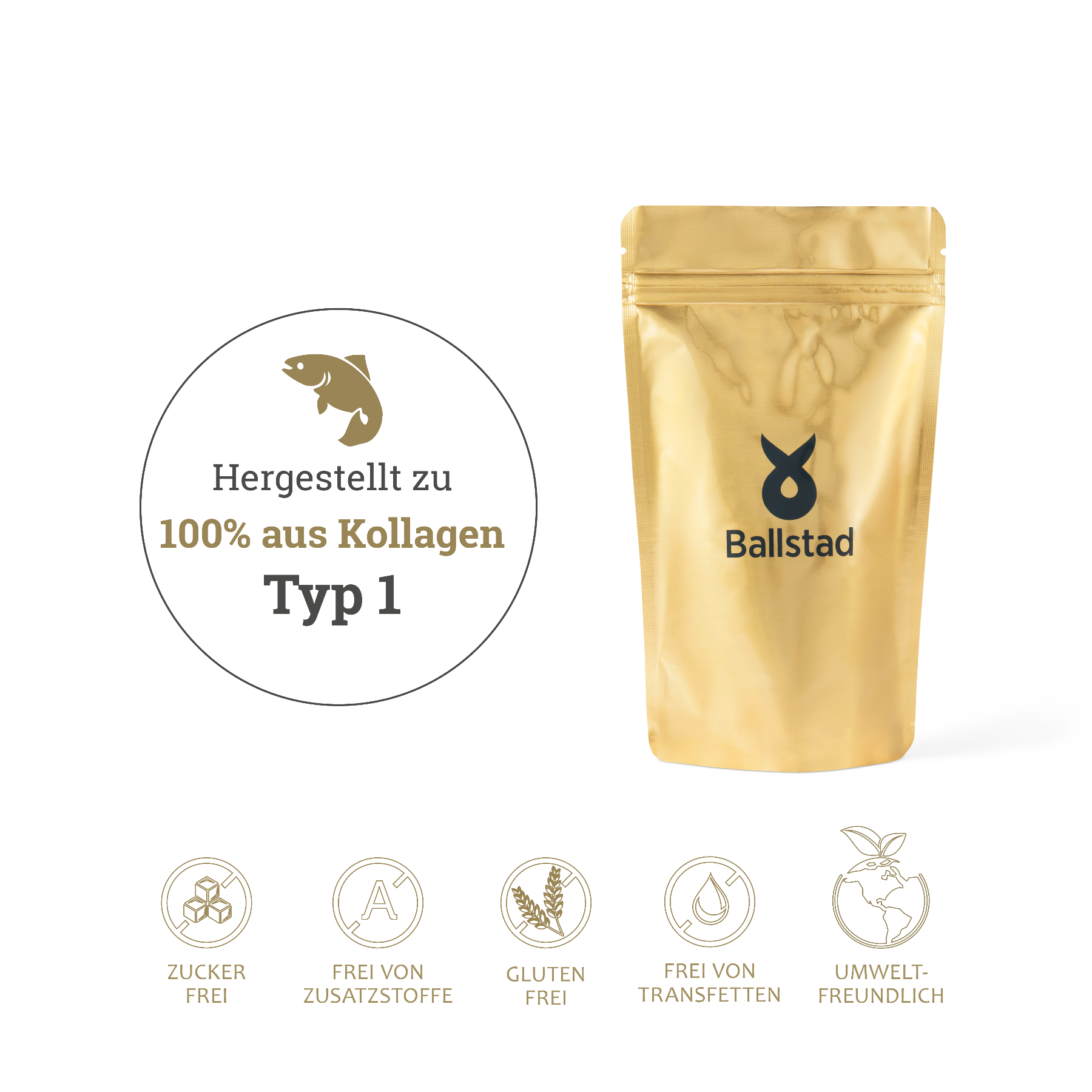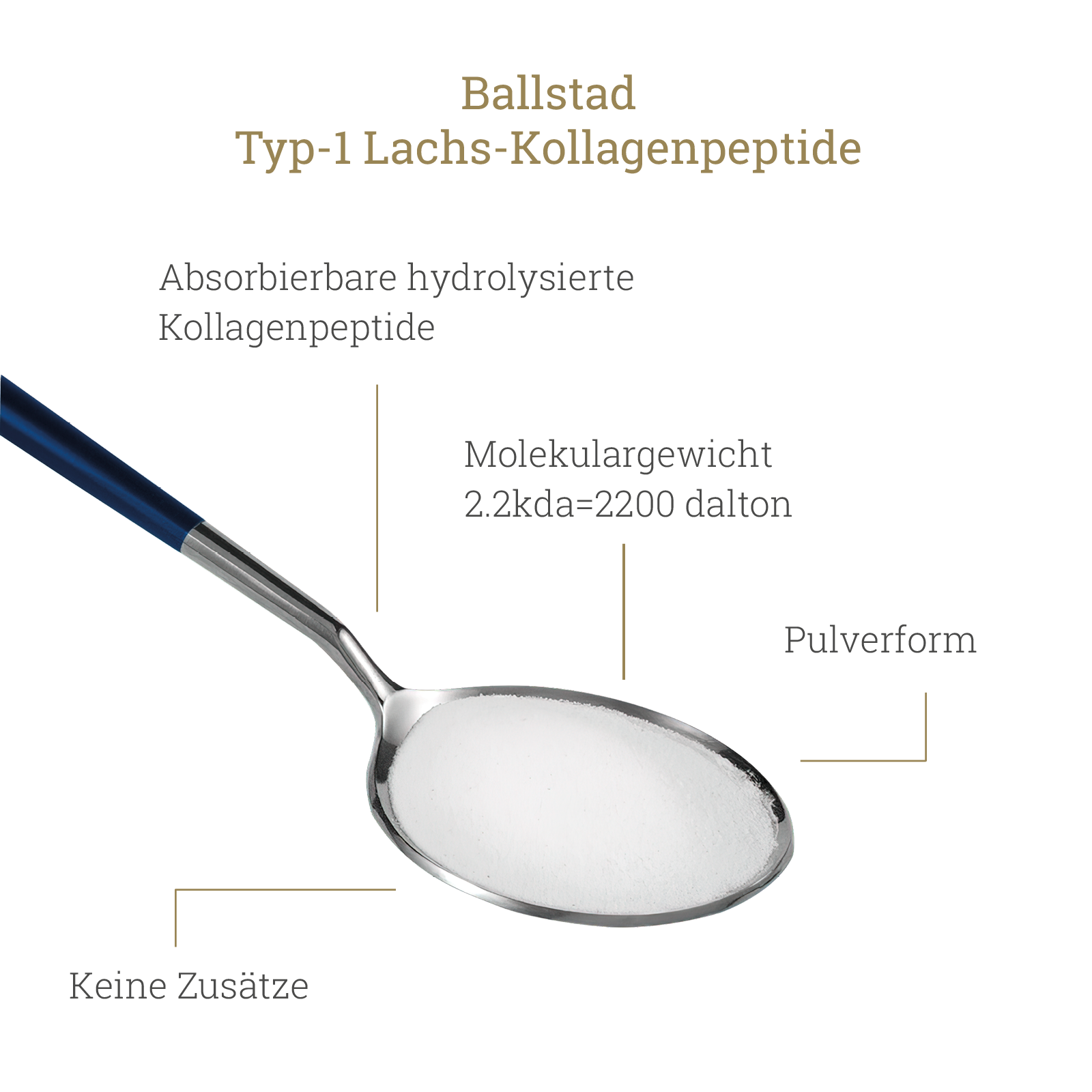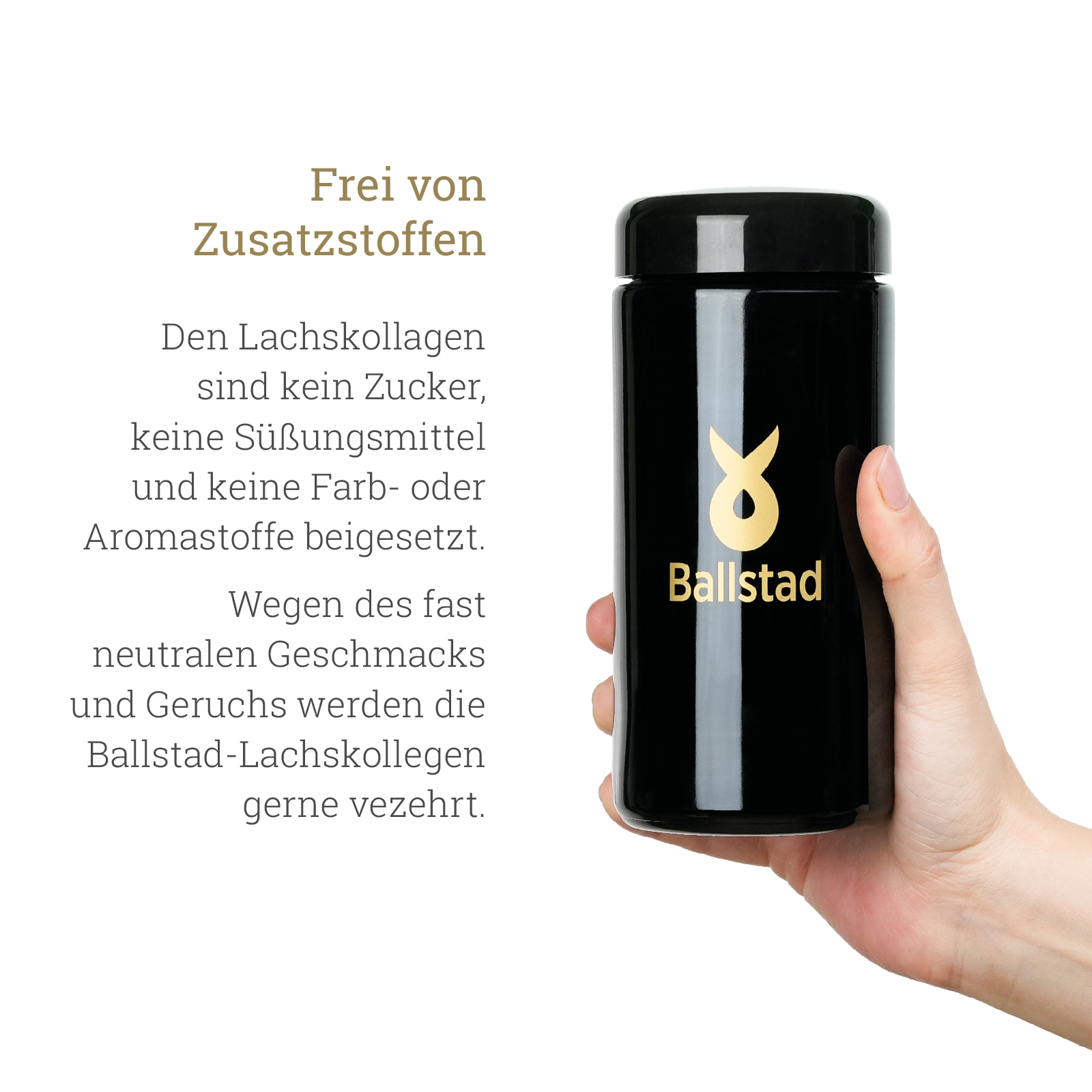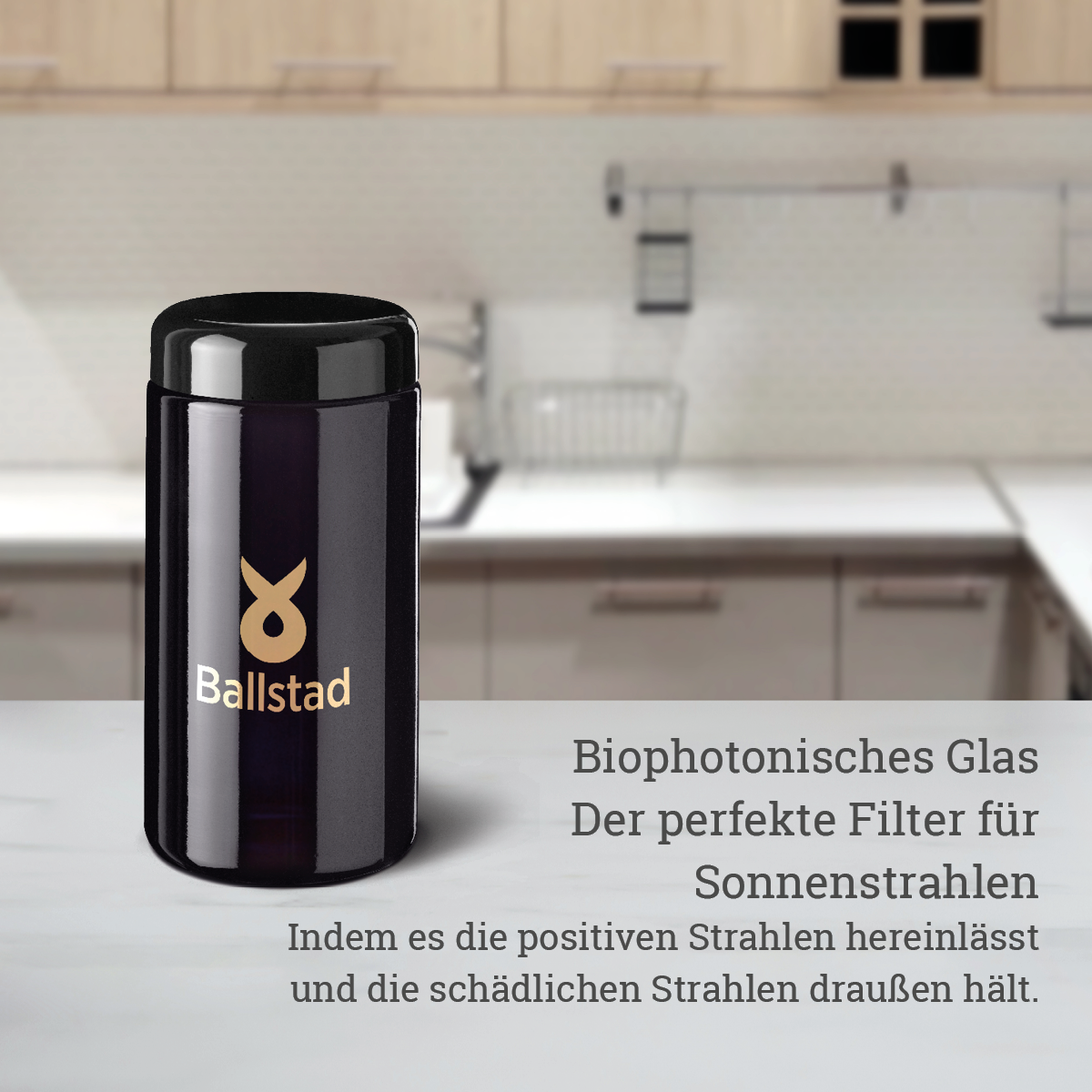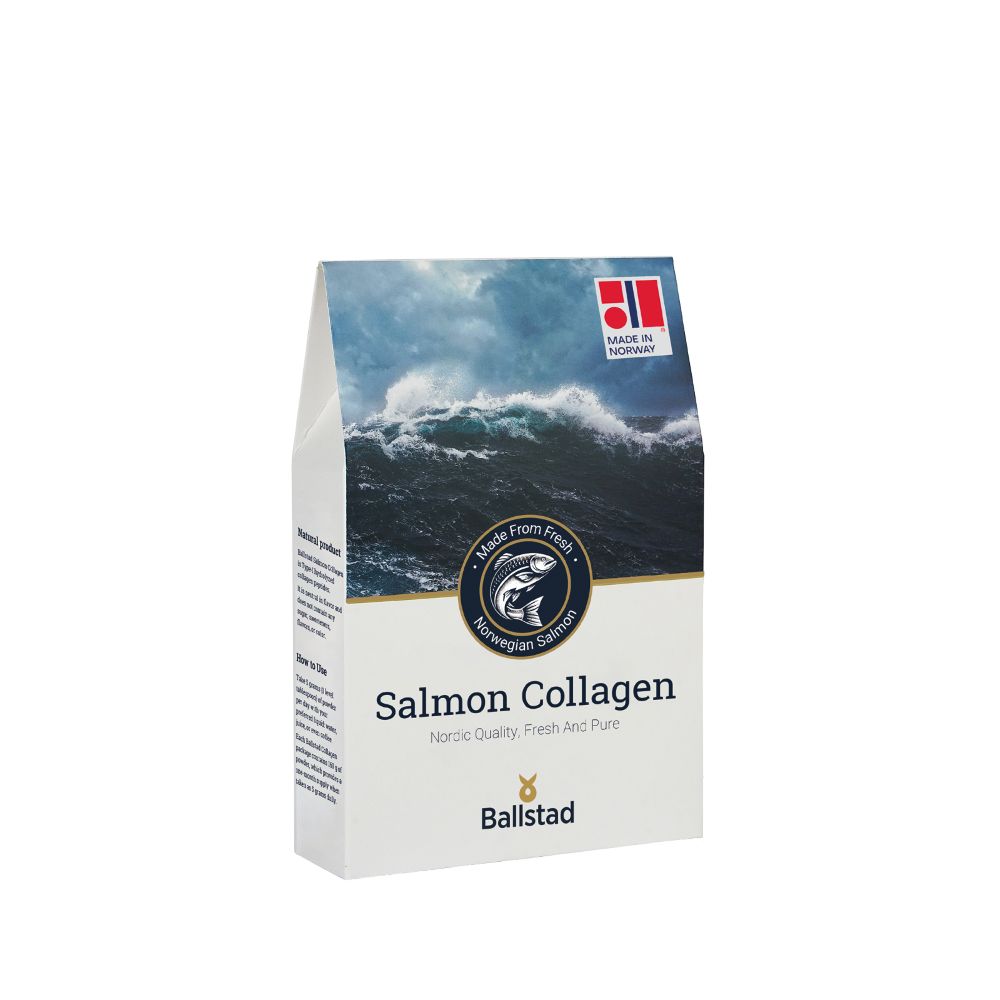Summer brings light and vitality—but also increased UV exposure to the skin. Too much sun can promote visible skin changes, weaken the skin barrier, and impair the skin's appearance in the long term. In addition to external sun protection, diet can also play a role. New findings suggest that omega-3 fatty acids, as part of a balanced diet, can support normal skin function.
What are omega-3 fatty acids and where do they occur?
Omega-3 fatty acids are polyunsaturated fatty acids, particularly EPA (eicosapentaenoic acid) and DHA (docosahexaenoic acid). They are found in fatty marine fish such as salmon, sardines, and mackerel, but also in algal oil, flaxseed, chia seeds, and walnuts.
High-quality fish oil supplements like Ballstad Omega-3 provide EPA and DHA in a pure and easily absorbable form. Such supplements can help supplement daily intake in a targeted manner—especially for people who eat little fish.
Possible benefits of omega-3 fatty acids for the skin
Studies show that omega-3 fatty acids are linked to certain processes in the body that may also be relevant to the skin.
1. Contribution to normal skin function in UV stress
UV radiation can trigger oxidative stress and a skin reaction. Some research suggests that EPA may influence certain inflammatory processes, which may be important for maintaining healthy skin functions.
2. Strengthening the skin's protective barrier
DHA is a component of cell membranes and, as part of a balanced diet, can help stabilize the skin structure and support the skin barrier against external influences.
3. Supportive role in UV exposure
Studies have linked regular intake of omega-3 fatty acids to altered skin response to UV radiation. This could indicate increased skin tolerance to the sun—as a complement to proven topical sun protection.
Is Omega-3 enough as sun protection?
No – Omega-3 is not a substitute for sunscreen. For comprehensive protection, a combination of sunscreen with a sun protection factor (SPF), protective clothing, hats, and sunglasses is crucial – complemented by a diet rich in omega-3 fatty acids.
Products like Ballstad Omega-3 offer a convenient way to provide the body with high-quality sources of omega-3 as part of a healthy lifestyle.
Conclusion: Protect your skin from inside and out
Sun protection is more than just applying cream. The combination of external care and internal support through nutrients can complement a holistic skincare concept. Omega-3 fatty acids, as part of a balanced diet, can contribute to normal skin function – especially during times of increased sun exposure.
References:
-
Pilkington, SM, Watson, REB, Nicolaou, A., & Rhodes, LE (2011).Omega-3 polyunsaturated fatty acids: photoprotective macronutrients.Experimental Dermatology, 20(7), 537–543.DOI: 10.1111/j.1600-0625.2011.01283.x
-
Rhodes LE, O'Farrell S, Jackson MJ, et al. (1994).Dietary fish-oil supplementation in humans reduces UVB-erythemal sensitivity but increases epidermal lipid peroxidation.Journal of Investigative Dermatology, 103(2), 151-154.DOI: 10.1111/1523-1747.ep12393231
-
Calder, PC (2015).Marine omega-3 fatty acids and inflammatory processes: Effects, mechanisms and clinical relevance.Biochimica et Biophysica Acta (BBA) - Molecular and Cell Biology of Lipids, 1851(4), 469–484.DOI: 10.1016/j.bbalip.2014.08.010
-
Black, HS, Rhodes, LE (2016).Potential benefits of omega-3 fatty acids in non-melanoma skin cancer.Journal of Clinical Medicine, 5(2), 23.DOI: 10.3390/jcm5020023


